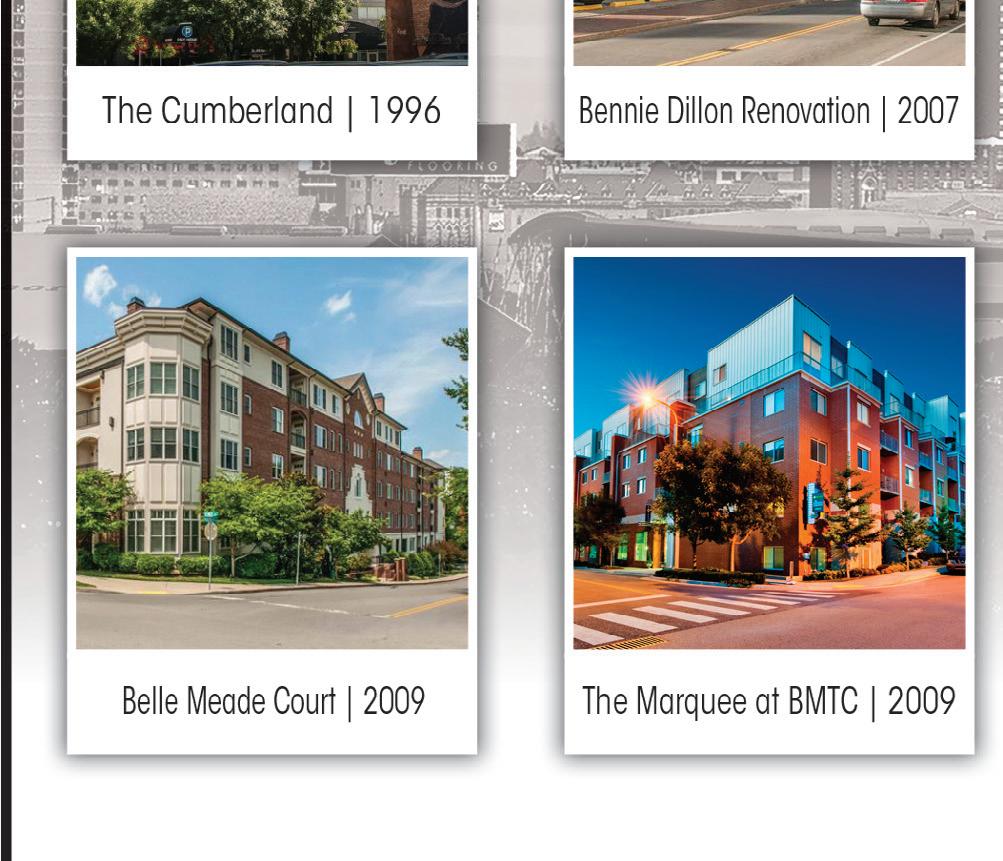






























Book’em aims to create a more literate
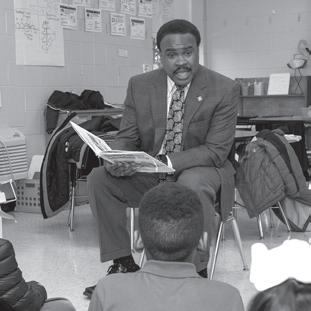

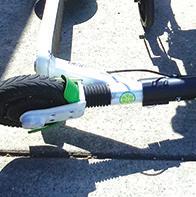
Contributor vendor Paul A. just moved into his own apartment, but he’s not done working and he’ll tell you why.
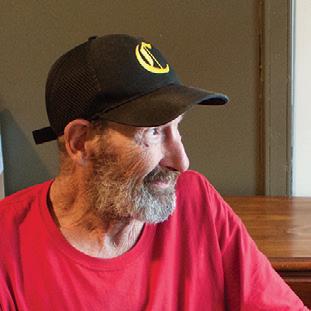
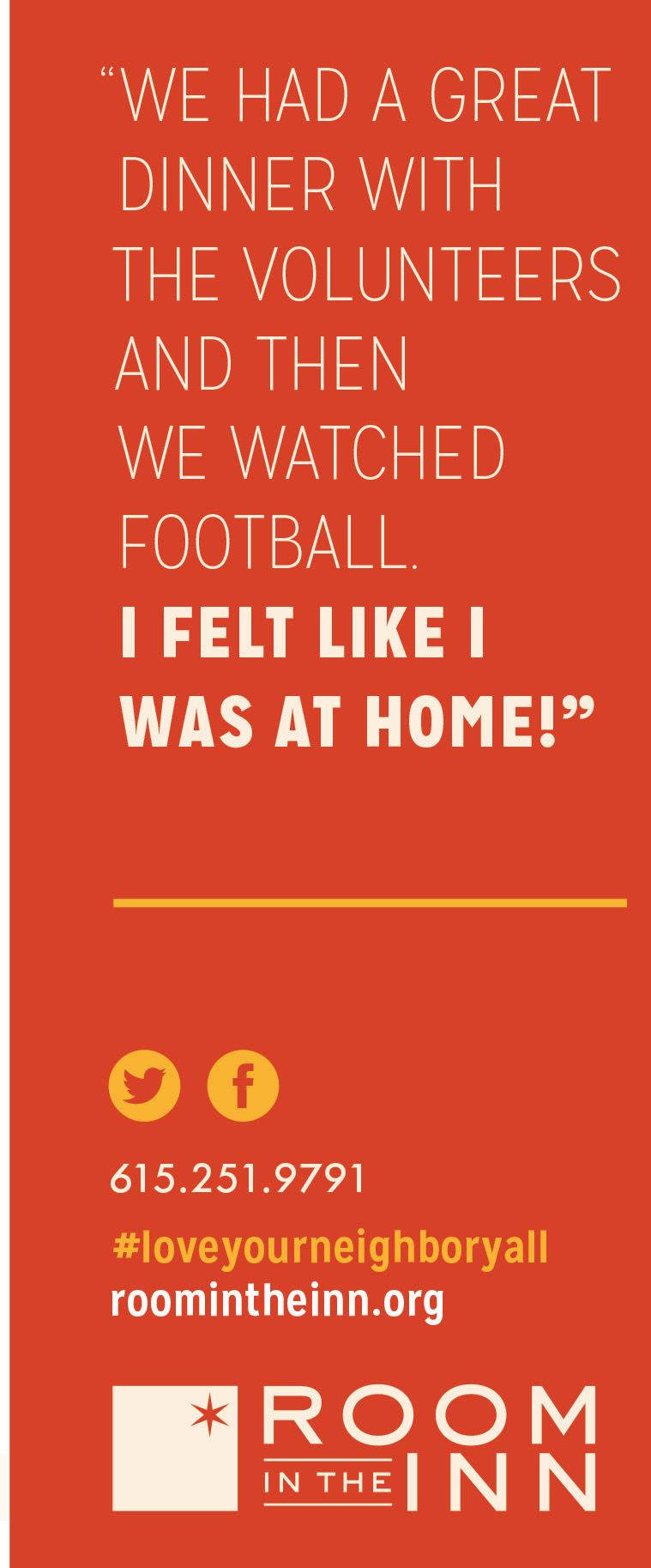

Contributor Board
Cathy Jennings, Chair Tom Wills, Bruce Doeg, Demetria Kalodimos, Ann Bourland
Linda Bailey • Amanda Haggard • Hannah Herner • Bailey Basham • Tom Wills • Ridley Wills II • Norma B. • Vicky B. • William B. • Mr. Mysterio • Cynthia P. • Joe Nolan • Samantha Max




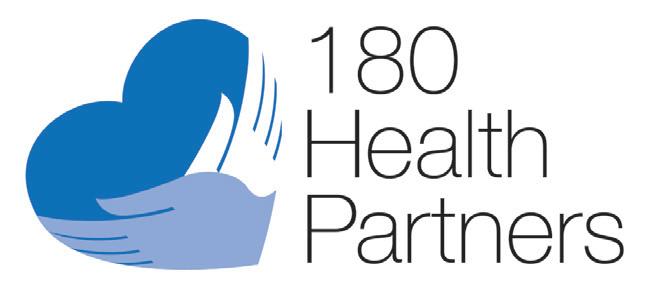
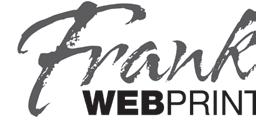
Cathy Jennings • Tom Wills • Joe First
• Andy Shapiro • Michael Reilly • Ann Bourland • Patti George • Linda Miller • Deborah Narrigan • John Jennings • Barbara Womack • Colleen Kelly • Janet Kerwood • Logan Ebel • Christing Doeg • Laura Birdsall
• Nancy Kirkland • Mary Smith • Andrew Smith • Ellen Fletcher • Michael Chavarria
Will Connelly, Tasha F. Lemley, Steven Samra, and Tom WIlls Contributor Co-Founders
Editorials and features in The Contributor are the perspectives of the authors. Submissions of news, opinion, fiction, art and poetry are welcomed. The Contributor reserves the right to edit any submissions. The Contributor cannot and will not endorse any political candidate.

Submissions may be emailed to: editorial@thecontributor.org
Requests to volunteer, donate, or purchase subscriptions can be emailed to: info@thecontributor.org Please email advertising requests to: advertising@thecontributor.org







Mailng Address
The Contributor P.O. Box 332023, Nashville, TN 37203
Editor’s Office: 615.499.6826 Vendor Office: 615.829.6829
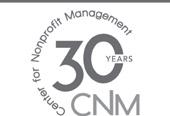
Proud Member of:
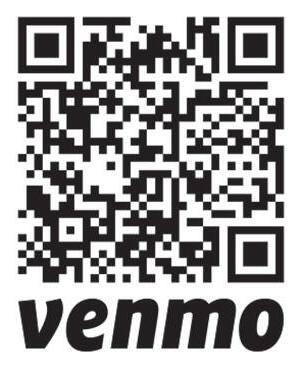



Printed at:
Follow The Contributor:
Copyright © 2018 The Contributor, Inc. All rights reserved.
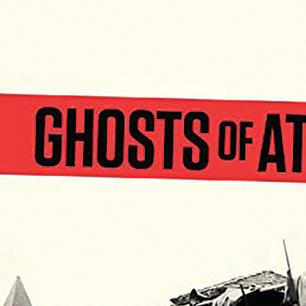
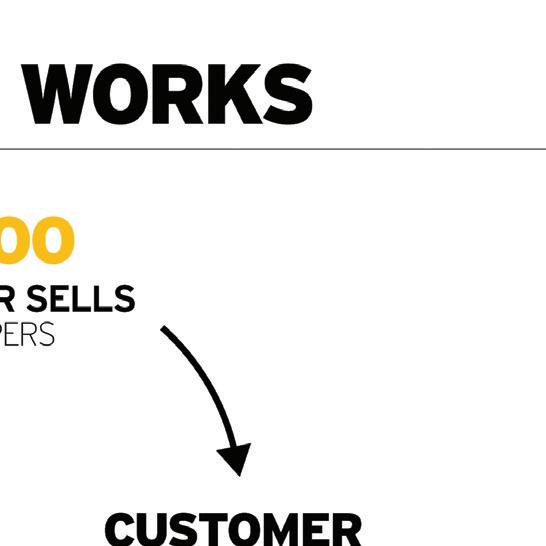 BY TOM WILLS, CO-FOUNDER
BY TOM WILLS, CO-FOUNDER
The paper you just paid for was bought by someone else first, otherwise it wouldn’t exist. That’s how The Contributor works. A vendor who experienced homelessness paid 50 cents for this paper and then sold it to you. By buying it and taking it with you, you’ve just encouraged that vendor to buy another. BOOM! That’s the solution. Now keep reading. This paper has something to say to you.
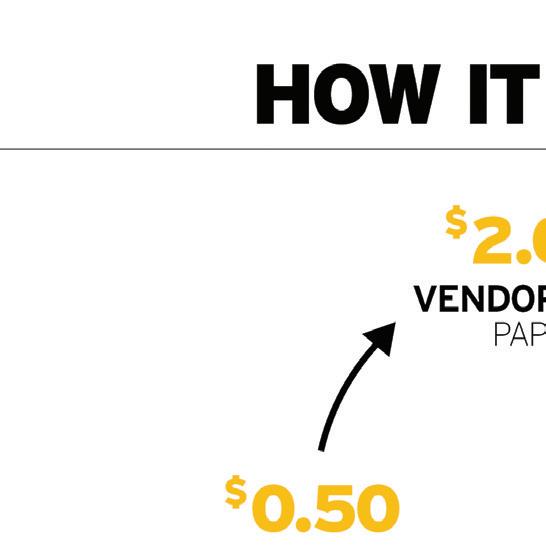
Street papers provide income for the homeless and initiate a conversation about homelessness and poverty. In 2007, The Contributor founders met at the Nashville Public Library downtown to form one. In a strike of lightning we named it The Contributor to infer that our vendors were “contributors to society,” while their customers could contribute to their work. But, thunder from lighting is always delayed …
It took three years, but Nashville embraced us like no other city in the world. The Contributor became the largest selling street paper per-capita on the globe. And today 50 percent of our six months or longer tenured vendors have found housing. BOOM! The thunder has struck.
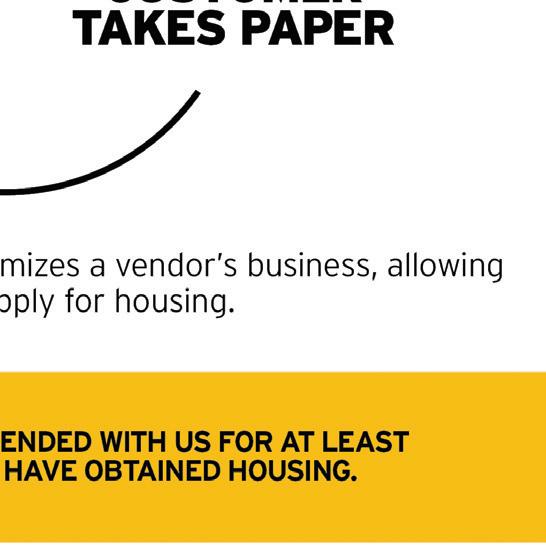
The Contributor is a different kind of nonprofit social enterprise. We don’t serve meals or provide emergency shelter. We don’t hire people in poverty to create products or provide a service. Rather, we sell newspapers to homeless people who work for themselves. We train them to sell those papers to you, keep the money they earn, and buy more when they need to replace their stock.
Our biggest fans don’t always get this. Like lightning without the thunder, they see the humanity of the vendor but misunderstand the model. Case in point: In 2013 during a funding crunch, a representative of one of Nashville’s biggest foundations exclaimed, “I’m such a big fan that I never take the paper!” We responded, “Well, that’s why we are in a funding crunch.” BOOM! Thunder was heard. Taking the paper makes our model work — not taking it breaks it. And selling the paper twice doesn’t just fund the paper, it funds housing and change. BOOM! Our vendors report their sales to qualify for subsidized housing and even for standard housing deposits and mortgages. They don’t consider your buying the paper a “donation.” It is a sale. When they sell out, they buy more and build the paper trail of a profitable business. Until making these sales, many of our vendors had never experienced the satisfaction of seeing their investment pay off. And when it does, it liberates! They have become “contributors” to their own destiny. And Nashville has become a city of lightning and thunder. BOOM!
Now that you are a SUPPORTER , become an ADVOCATE or a MULTIPLIER You are already a SUPPORTER because you know that taking the paper makes the model work. You bought the paper and you are reading it. Now your vendor is one copy closer to selling out, which is exciting! Now you can become an ADVOCATE when you introduce your friends to your favorite vendor, follow us and share our content on social media, contact us when you witness a vendor in distress or acting out of character, or explain why others should pick up a copy and always take the paper when they support a vendor. And, you can become a MULTIPLIER when you advocate for us AND directly donate to us or become an advertiser or sponsor of The Contributor. Our income stream is made of 50-cent- at-a-time purchases made from our vendors, matched by contributions, ad sales and sponsorships from multipliers like you. Because our vendors are business owners, your donations are seed-money investments in their businesses and multiply in their pockets. Every donated dollar multiplies four-to-seven times as profits in the pockets of our vendors. Thanks for contributing.

El periódico que usted acaba de pagar fue primeramente comprado por alguien mas, de otra manera no existiría. Así es como funciona The Contributor. Un vendedor que está sin hogar pagó 50 centavos por este periódico y después se lo vendió a usted. Al comprarlo y llevarlo con usted, usted animo a este vendedor a comprar otro. BOOM! Esa es la solución. Ahora continúe leyendo. Este periódico tiene algo que decirle. Los periódicos vendidos en la calle proveen ingresos para las personas sin hogar e inicia una conversación sobre lo que es la falta de vivienda y la pobreza. En el 2007, los fundadores de The Contributor se reunieron en una librería pública en Nashville para formar uno. Y como golpe de un rayo, le llamamos The Contributor para dar a entender que nuestros vendedores eran “contribuidores para la sociedad,” mientras que los consumidores podrían contribuir a su trabajo. Pero, el trueno siempre tarda más que el rayo. Nos llevó tres años, pero Nashville nos acogió como ninguna otra ciudad en el mundo. The Contributor se volvió uno de los periódicos de calle más vendido en el globo. Y hoy el 50 por ciento de nuestros seis meses o más de nuestros vendedores titulares han encontrado casa. BOOM! Ha llegado el trueno.
JENNINGSThe Contributor es una empresa social sin fines de lucro muy diferente. Nosotros no servimos comida or proveemos alojo de emergencia. No contratamos gente en pobreza para crear productos or proveer un servicio. En vez, nosotros vendemos periódicos a las personas sin hogar para que ellos trabajen por ellos mismos. Nosotros los entrenamos como vendedores, ellos se quedan el dinero que se ganan, y ellos pueden comprar más cuando necesiten reabastecer su inventario.
Nuestros mas grandes aficionados no entienden esto. Como un rayo sin trueno, ellos ven la humanidad de el vendedor pero no comprenden el modelo. Un ejemplo: En el 2013 durante un evento de recaudación de fondos, uno de los representantes de una de las fundaciones más grandes de Nashville, exclamó: “Soy un gran aficionado, y es por eso que nunca me llevo el periódico.” Al cual nosotros respondimos: “Y es por esa razón por la cual estamos recaudando fondos.” BOOM! Y se escuchó el trueno! El pagar por el periódico y llevárselo hace que nuestro sistema funcione, el no llevarse el periódico rompe nuestro sistema.
Y el vender el papel dos veces no da fondos para el periódico, pero da fondos para casas y causa cambio. BOOM! Nuestros vendedores reportan sus ventas para calificar para alojamiento subvencionado y hasta para una casa regular, depósitos e hipotecas. Ellos no consideran el que usted compre el periódico como una “contribución” pero más lo consideran como una venta.
Cuando se les acaba, ellos compran mas y asi logran establecer un negocio rentable. Hasta que lograron hacer estas ventas, muchos de nuestros vendedores nunca habían experimentado el placer de ver una inversión generar ganancias. Y cuando logran hacer esto, da un sentido de Liberación! Ellos se han vuelto contribuidores de su propio destino, y Nashville la ciudad de el trueno y el rayo. BOOM!
Ahora que te has vuelto nuestro SEGUIDOR, vuelve te en un ABOGADO o un MULTIPLICADOR. Ya eres nuestro SEGUIDOR, porque sabes que al llevarte este periódico sabes que esto hace que nuestro modelo funcione. Compraste el papel y lo estas leyendo. Ahora nuestro vendedor está a una copia más cerca de venderlos todos. Que emoción!
Ahora que te has vuelto nuestro ABOGADO cuando presentes a tus amigos a tu vendedor favorito, siguenos y comparte nuestro contenido en social media, contactanos cuando seas testigo de un vendedor actuando de manera extraña o fuera de carácter. O explicale a tus amigos porque ellos deben de llevarse el periódico cuando ayuden a un vendedor.
Te puedes volver un MULTIPLICADOR cuando abogues por nosotros, Y directamente dones a nosotros o te vuelvas un anunciador o patrocinador de The Contributor. Nuestra fuente de ingresos consiste en ventas de 50 centavos hechas por nuestros vendedores, igualadas por contribuciones, venta de anuncios, y patrocinios de multiplicadores como usted. Porque nuestros vendedores son dueños de negocios, las donaciones que den son dinero que es invertido y multiplicado en sus bolsas. Cada dólar donado se multiplica de cuatro a siete veces en la bolsa de nuestros vendedores.
Gracias por Contribuir.Oasis Center, which provides services for youth in crisis in Nashville, has been awarded $3.4 million in federal funds to address youth homelessness over the next two years. On Aug. 13, the center announced how they will use those funds as part of a Youth Homelessness Demonstration Project.
Of those funds, $2.1 million will be designated for providing housing — which includes rental assistance and case management to 70 young adults ages 18 to 24. And $1.2 million of those funds will be to stabilize young adults so they don’t end up in the crisis response system to begin with.
Mayor David Briley addressed the crowd and thanked Oasis Center for the decades of work they’ve done for youth.
“Today is a good day for the city of Nashville because we’re able to announce some important steps for addressing probably the most important issue that we have in the city right now,” Briley said. “That is the fact that as we grow we’re becoming more and more expensive and in fact, too expensive for most. At the same time, young people in our culture, in our city, are experiencing a lot more trauma than ever before. Those two things come together and we have an epidemic of youth homelessness here in Nashville.”
The 40-page plan has five main goals:

• “To identify all unaccompanied youth and young adults experiencing homelessness in Nashville-Davidson County.
• Prevent and divert homelessness whenever possible and otherwise provide immediate access to low-barrier crisis housing and services to any youth who needs and wants it.
• Effectively link all youth experiencing homelessness to housing and services solutions that are tailored to their needs through the use of the Coordinated Entry System [a database which lets local organizations work together and track the status of those experiencing homelessness]
• Swiftly assist youth to move into permanent or non-time-limited housing options with appropriate services and supports
• As a community, have resources, plans and system capacity in place to continue to prevent and quickly end future experiences of homelessness among youth and young adults”
Alesha Alexcee, one of the members of the Youth Action Board that has been meeting weekly for the past six months to advise this
plan, shared her story. She lived in 10 residences from the age of 18 to 23 while she worked her way through college, sometimes even sleeping in college administration buildings. She’s been in stable housing for two years now.
“I thought for sure that my golden ticket out of homelessness was graduating from college or getting a good job,” Alexcee said.
“It was neither. It was actually signing my first lease to my first apartment on Aug. 2, 2017 that got me out of homelessness. I can now say that I’ve been stably housed for the last two years. Obviously this is a huge deal for me. I’ve spent five years experiencing homlessness — five years too long.”
She says it’s not enough just to be housed, but it’s also important to have quality youth-centric support services. She said she and her peers on the Youth Action Board have often felt frustrated by trying to navigate the city’s services, and that some programs who claim to be trauma-informed simply aren’t. She said the purpose of the board was to give youth and young adults experiencing homelessness a chance to sign their own leases and to hold service providers accountable for creating services that are, in fact, trauma-informed.
“We wanted to give each youth and young adult a chance to say, I am here, I am safe, I am home,” Alexcee said.
Chief Strategy Officer of the Oasis Center Mark Dunkerly said the plan cannot be truly effective without community support. A separate handout was given at the event detailing how the public can help.
“While this is the biggest thing that’s happened in Nashville’s history for this population, this, in and of itself, is not going to end youth homelessness,” Dunkerly said. “It is a giant first step and that we could not be more excited about, but we need your help. This is the momentum we’ve been looking for and now is the time when we’re asking the community for help.”
Oasis Center has funds to help keep young adults in housing, but they have the most trouble finding landlords who are willing to rent their apartments to young people.
Oasis Center is also in need of funds to be used in one of three ways. One is to renovate the office space to accommodate the 16-18 new people they are adding to the staff. Oasis Center is also charged with matching 25 percent of the grant, meaning they will need a total of $423,000 per year in cash and in-kind support. As of press time, they still needed to raise $75,000. The third use will be for a Landlord Mitigation Fund, which could help pay for any damages to units, as many of the young people might not have someone to co-sign a lease with them.
Willing landlords are encouraged to contact Michael Centi (mcenti@oasiscenter.org).
WE’RE HONORED TO SUPPORT THE CONTRIBUTOR AND TO CHAMPION GOOD NEWS IN NASHVILLE.
The Tennessee Department of Education reported that a student spends only 900 hours per year in school — 7,800 hours are spent outside of the classroom, away from structured learning, the teacher-student relationship and access to a classroom library.
Students with limited access to age-appropriate books outside of the classroom show a third of the interest in reading compared to those who have a steady stream of new reading material.
According to the Handbook of Early Literacy Research, the ratio of books per child in middle-income neighborhoods is 13 to 1 — in low-income neighborhoods, the ratio is one book for every 300 children.
Access to age-appropriate books creates the foundation for literacy, and statistics rally against students who lack that foundation, making them four times less likely to graduate from high school.
Book’em is a Nashville nonprofit that aims to create a more literate Nashville, and they work to do so by making it possible for all of
Nashville’s students to build their own personal library at no cost. Last year, the organization gave away 100,000 books to Nashville’s students.
“Books change our lives in so many ways — they comfort us, they educate us, they help us learn about and empathize with others, they entertain. They do so many things for us as people, and because of that, we think that every home should have a home library of books that the kids have picked out for themselves. That’s the way we get kids excited about reading,” said Melissa Spradlin, executive director of the organization.
Spradlin has been with Book’em for the last 11 years, and she said during her time with the organization, she has seen the transformative power of literacy at work in the community.
“Literacy matters to all of us — if we want a strong workforce, citizens who are active and knowledgeable, who are passionate and who care about our community, then we need every single person to be literate,” said Spradlin. “It’s really about being able to be successful. Without that strong foundation, choices are
limited. If we want a great community, we have to invest in our schools and our kids, and we need to make sure that every kid is reading well and that they have the resources they need to become strong readers and eventually be able to be successful in life. And success isn’t just about money — it’s happiness, joy, relationships.”
In addition to providing books for students at no cost, Book’em also organizes opportunities for students to be read to. By the age of two, children who are read to regularly exhibit greater comprehension, vocabularies and cognitive skills compared to their peers who are not read to.
“Our reading role models that go to schools and read with the kids as a classroom, and one of the best parts is these are people from all walks of life. We’ve got CEOs of corporations to retirees to students to stay-athome moms and dads to young professionals. All kinds of people are part of our reading program, but one of the things they have in common is they all value and understand how important reading is, and they really
care about our kids and want them to succeed. They’re willing to spend some of their time in the classroom, engaging with these kids and encouraging them, and it’s those little nuggets of encouragement that the kids need that’s not their teacher,” Sprauldin said.
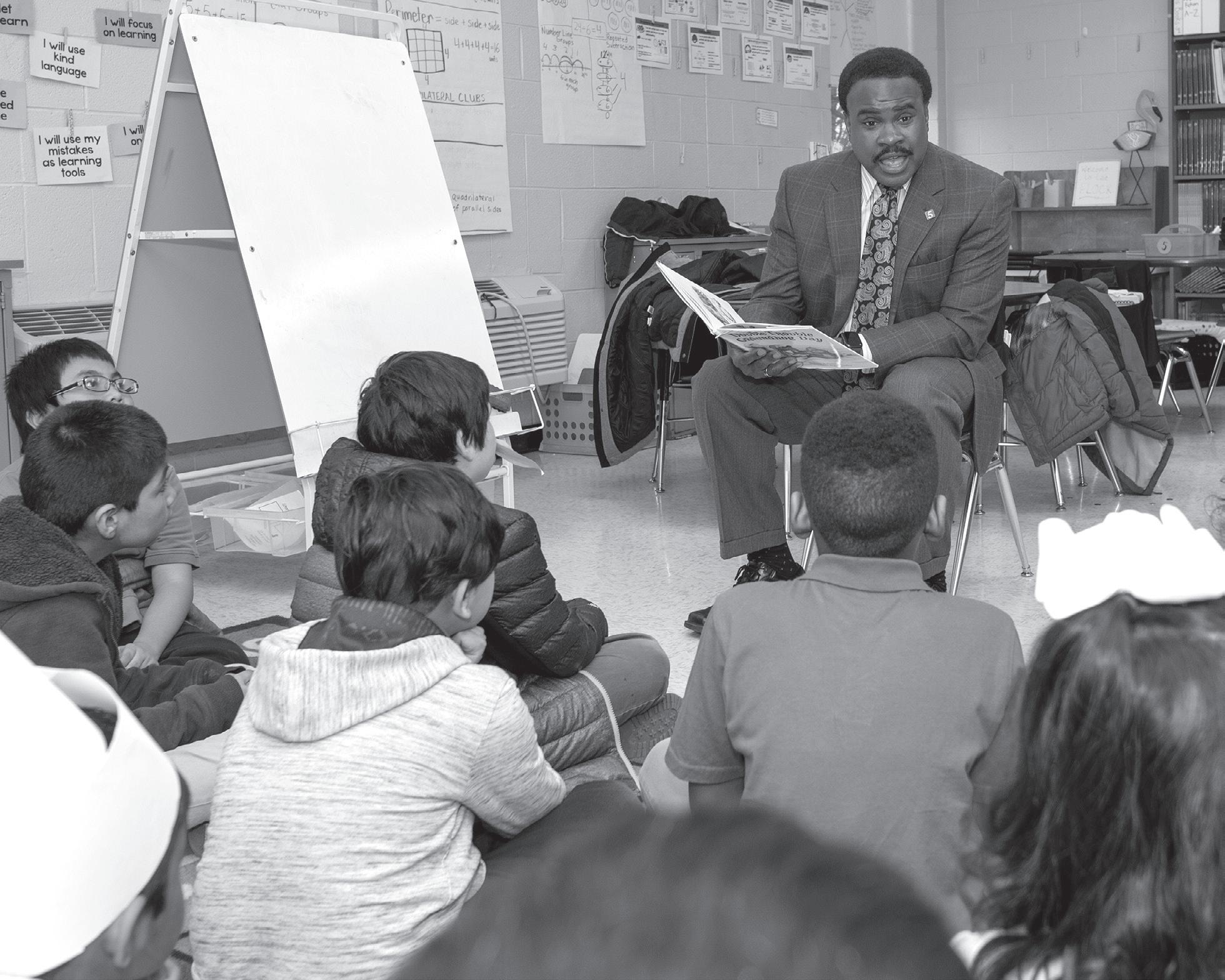
Spraudlin said the data is a great motivator, but the memories and experiences books can provide to students are just as important.
“Most people have some sort of really fond memory about books as a kid, and they should. Everybody should have those memories, and that’s one of the things I love about what we do, “ she said. “And there are lots of ways the community can support literacy without it being difficult or expensive or too time-consuming. I can buy books for $2.50 so a $10 donation provides several books for a kid. It’s really simple. Books matter. All the time, we hear from our volunteers, ‘I remember when I was a kid reading this and this and this,’ and we want every child to get to have those experiences. To make that happen, we have to help.”
William C. “Bill” Weaver, Jr. was born Oct. 10, 1912 at Seven Oaks, the home of his parents, Irene Morgan and William C. “Will” Weaver, five miles from Nashville on Murfreesboro Road. As a little boy, Bill and his sister, Henriette, only 14 months older, had more freedom than most city children as there was very little traffic on the still unpaved Murfreesboro Road and everybody in the neighborhood knew, were fond of, and protective of the Weaver children. Mr. Weaver’s aunt, Edna Harris lived next door at Kingsley, the magnificent ante-bellum home designed by William Strickland, the architect for the Tennessee State Capitol.
Across the road from Kingsley stood Colemere, the home of Bill’s uncle, Dempsey Weaver, and his wife, Anna Cole Weaver. Toward town and a little below and across the road from Seven Oaks was Arlington Methodist Church, where the Weavers and Harrises were members. About a mile away toward town was Herschel Gower’s general store, where Mr. and Mrs. Weaver frequently bought gas or staple items. Further out the highway was Mr. McMahon’s store and the Tennessee Asylum for the Insane that had been administered by Mr. Weaver’s great grandfather, Dr. William Archer Cheatham, in the 1850s.
Each summer when school was out, Bill and Henriette looked forward to going by train and later by automobile with their Morgan grandparents or parents to the Morgan family summer home, Restover, in the Monteagle Sunday School Assembly. Matilda Evans Morgan, Bill’s grandmother, built the cottage in 1900 with some money she inherited from an uncle.
Her father-in-law, Dr. William Henry Morgan spent one summer there before his death in 1901. Her husband, Dr. Morgan’s son, Dr. Henry William Morgan, the first graduate of Vanderbilt Medical School, came on weekends until his death in 1920 and their five children, including Bill’s mother, Irene Morgan Weaver, and his uncle, Dr. Walter McNairy Morgan, spent part of their summers there, as did various aunts and uncles and first cousins. When Bill’s Uncle Dr. Walter Morgan was a teenager, he worked various jobs at the Assembly, and was the best tennis player on the grounds.
Walter was so good that he won the Tennessee State Tennis singles championship twice. When Bill was a teenager, he always got a job at Monteagle within a day or two of arrival. First, he was a pin boy at the bowling alley and later worked at the front gate. In his spare time, he played tennis on the assembly courts or swam in the swimming pool. He and Henriette almost never took hikes outside the assembly grounds because their parents said the woods were full of moonshiners. Bill had a first cousin, Jean Ewing, who often was at Restover when he was. He loved to tease and scare her by jumping out at her in disguise. He also made a habit of walking across the bridges on the rail ignoring Jean’s plea to, “get down, Bill, get down!”
The Weavers also had a clay tennis court behind their house on Murfreesboro Road. There, and at Monteagle, Bill gained a life-long love for the game. His father, Mr. Will Weaver drove to town every day to his wholesale hardware and appliance business, McWhirter, Weaver & Company, on Second Avenue North. When the children were old enough to go to school, they rode to town with him or with the Dempsey Weavers’ chauffer to Peabody Demonstration School, where they started school together in the first grade. Bill, who was tall
and thin, played football and basketball at Peabody. He and Henriette graduated in 1930. Bill entered Vanderbilt that fall but, with the Depression in full swing, dropped out in 1932 to go to work at his father’s business. His first job was selling refrigerators door to door.
In the summer of 1938, Bill invited his girlfriend, Elizabeth Craig, of Nashville, to the Monteagle Assembly for a few days. Elizabeth, who had just completed her freshman year at Smith College, came to the mountain aware that the Smith College Foundation, to which she contributed $10, supported the nearby Highlander Folk School. She told Bill she would like to see the place. Bill agreed to drive her over there, but said they couldn’t get in. Elizabeth bet him that they could. At Highlander, Elizabeth introduced herself and Bill to Myles Horton, the director, and told him that she attended Smith College.
there. Bill left National Life on a leave of absence in May 1944, a month before their daughter Becky was born, to join the U.S. Army as an enlisted man. He had tried to get a commission but at 6’5” tall and color blind, he was rejected. In 1946, Bill returned to National Life’s Mortgage Loan Division and became assistant manager of the division the next year. By then, his children, Bill Weaver III, born March 18, 1941, and Becky, three years younger, spent portions of their summers at Restover, where their grandmother, Irene Morgan Weaver, made her home for five months of the year.
Bill would drive up for weekends where he played tennis on the same courts where his Uncle Walter Morgan had once been king. He did not accept opportunities to become a board member because he had heard stories of his grandmother, Matilda Morgan, stretching out on a sofa at Restover taking spirits of ammonia, after returning to her cottage from long, tedious, and often contentious board meetings. Besides, Bill came to Monteagle to relax after busy weeks in the business world. In 1957, Bill’s mother, Irene Morgan Weaver, died, only three days after leaving the mountain. She too had served on the assembly board for several terms. Money given to the assembly in her memory, supplemented by monetary gifts from Bill and his sister, Henriette Weaver Jackson, was used to finance the first endowed memorial Sunday sermon named in Mrs. Weaver’s memory and so initiated the present fully endowed sermon program. Monteagle stalwart, Cornelia Keeble Ewing, suggested designating gifts for this worthy project.
Horton immediately picked up on the connection and graciously took them on a tour of the facilities. At the library, the only one then open to the public in Grundy County, Bill noticed that many of the books were related to the labor movement. As they walked back to Bill’s car, he said, “Let’s get the hell out of here before this place explodes.” Bill also paid off the bet he lost to Elizabeth.
A natural salesman and businessman, Bill became treasurer and, after his father died in 1943,, president and chairman of the board of McWhirter, Weaver and Company.
Bill married Elizabeth Craig, the oldest daughter of Mr. and Mrs. Edwin W. Craig, May 15, 1940 at Nashville’s West End United Methodist Church. When he went up to National Life to ask Mr. Craig for Elizabeth’s hand in marriage, Mr. Craig, then Executive Vice President of the company, gave the wedding his blessing. He also encouraged his future son-in-law to join National Life. Mr. Craig already knew how charismatic and business-smart Bill was. Bill joined the life insurance company in 1940, becoming a supervisor in the Mortgage Loan Division of the Investment Department. Every day, after working a full day, at National Life, he went down to McWhirter Weaver and put in a couple of hours
Bill Weaver went on to successively become manager of National Life’s Real Estate and Mortgage Loan Department, (1953), financial vice president (1963), senior vice president (1964), executive vice president (1967) and president (1969). In 1972 he was named Chairman of the Board and chief executive officer of NLT the following year. During his time as CEO of National Life, the company climbed to become the 19th largest life insurance company in the country and sixth largest among stock companies. Bill also served on the boards of Third National Bank, Third National Corporation, and Hospital Corporation of America. He was also on the advisory board of Ralston Purina Company and developed, with a partner, Nashville’s Green Hills Shopping Center.
Bill Weaver, Jr. retired from NLT and WSM, where he was Chairman of the Board, in 1977. In the latter capacity, he oversaw the completion of Opryland USA and the move of the world famous Grand Ole Opry to the new quarters.
Two years later, at age 66, Bill Weaver, Jr., whose influence was felt in nearly all facets of Nashville life, died of cancer. The Nashville Tennessean spoke of his community leadership and also of his “great personal charm and natural warmth.” In an editorial titled “Mr. Weaver Left Region a Richer, Better Place,” Wayne Whitt, the managing editor, wrote, Bill Weaver “had an interest in all people, regardless of wealth or station. He was a lively companion, on a duck hunt, or at a luncheon. He had awareness, curiosity and a zest for life and challenge.”
In 1980, three tennis courts at the Monteagle Sunday School Assembly were named for Bill Weaver, Jr. whose greatest pleasure at the assembly was to find a doubles partner who could help him beat his son, Bill Weaver III and his wife, Nicky. Fiercely competitive, Bill gave no quarter on the court to anyone, including Bill and Nicky, or his daughter, Becky, all of whom he dearly loved.
HE WAS A LIVELY COMPANION, ON A DUCK HUNT, OR AT A LUNCHEON. HE HAD AWARENESS, CURIOSITY AND A ZEST FOR LIFE AND CHALLENGE.

This is Paul A. He’s 65 years old. He spends most afternoons selling papers Downtown at 5th Ave. and Church Street. He moved to Nashville from Michigan in December of 2018, and has been selling The Contributor since January. Through connecting with The Contributor and other local resources, Paul was able to get into housing in July after three years of not having his own place. Paul’s lifestyle has certainly changed now that he’s in housing, but he remains loyal to selling The Contributor. Before he got housing, Paul lived in a tent under a bridge from March to July of this year.
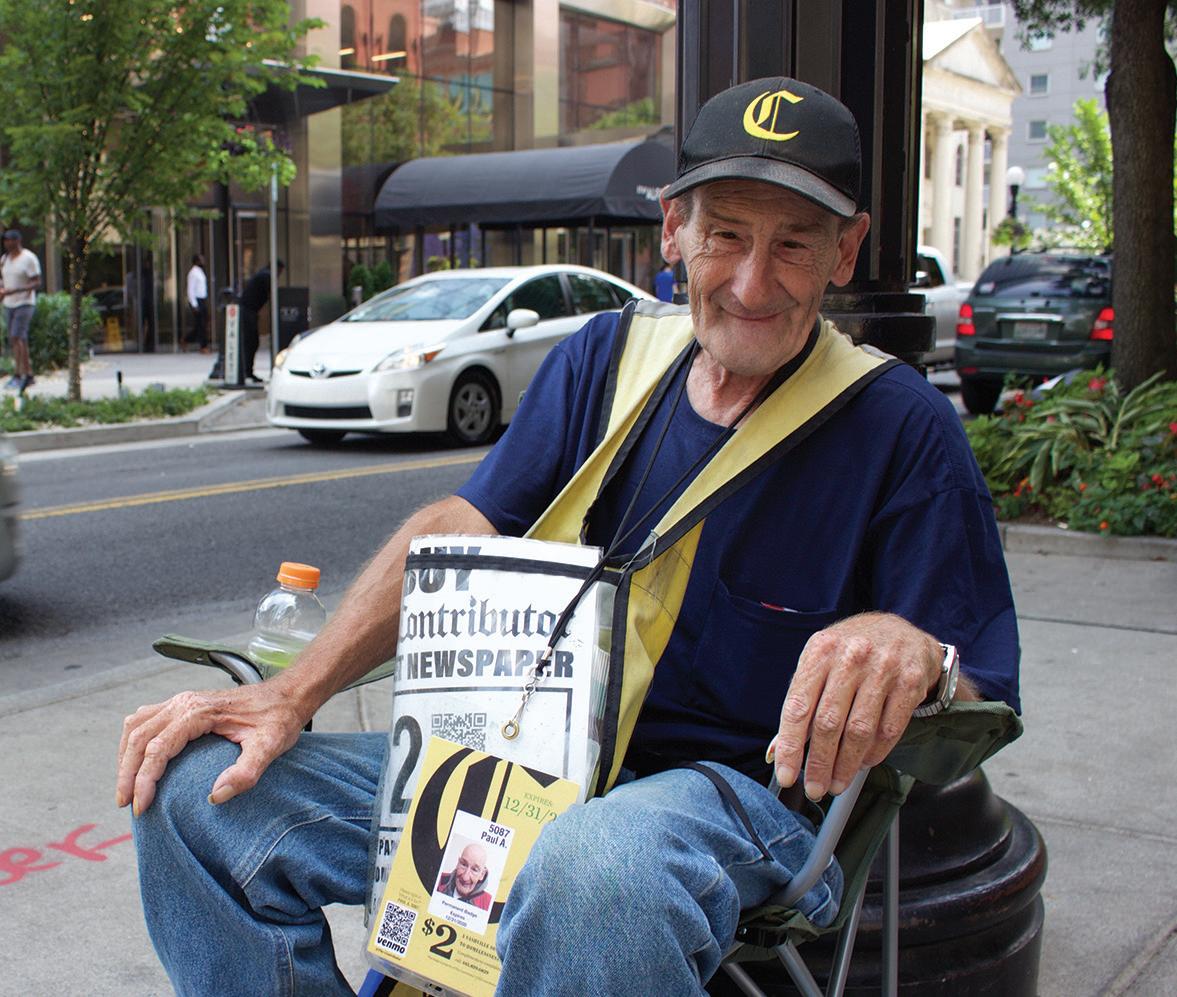
“If it wasn’t for the help from The Contributor, I’d still be up under that damn bridge. That’s how I look at it.” he says.
“I want to die with a Contributor in my hand, sitting on a corner. That’s how determined I am.”
Paul is legally blind, which gives him trouble with eye contact when customers walk by. He has a rare disorder that has made his vision close in, which started when he was in his 30s, but he loves talking to people. He is still able to navigate his world and maintain his independence. Paul also suffers from Chronic Obstructive Pulmonary Disease (COPD), which affects his breathing. Having cool air to breathe in his new home helps.
“I will say that being homeless will take a toll on your health,” he says.
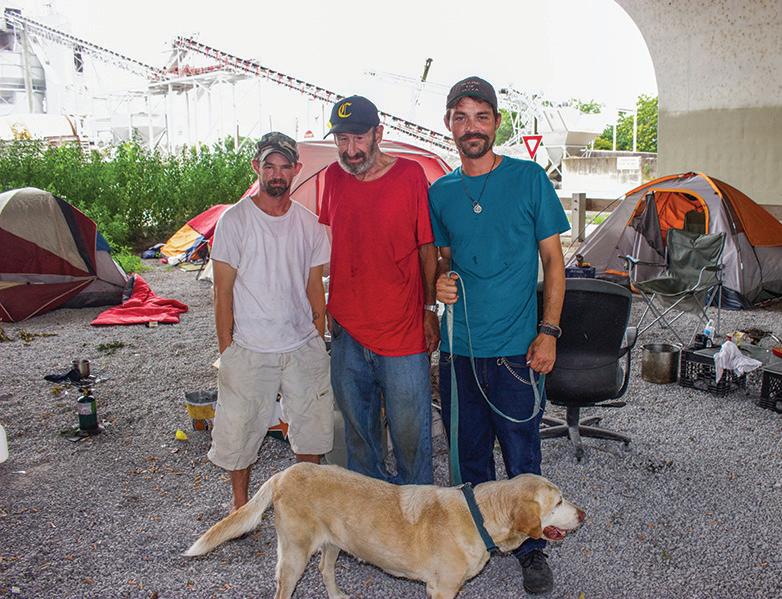
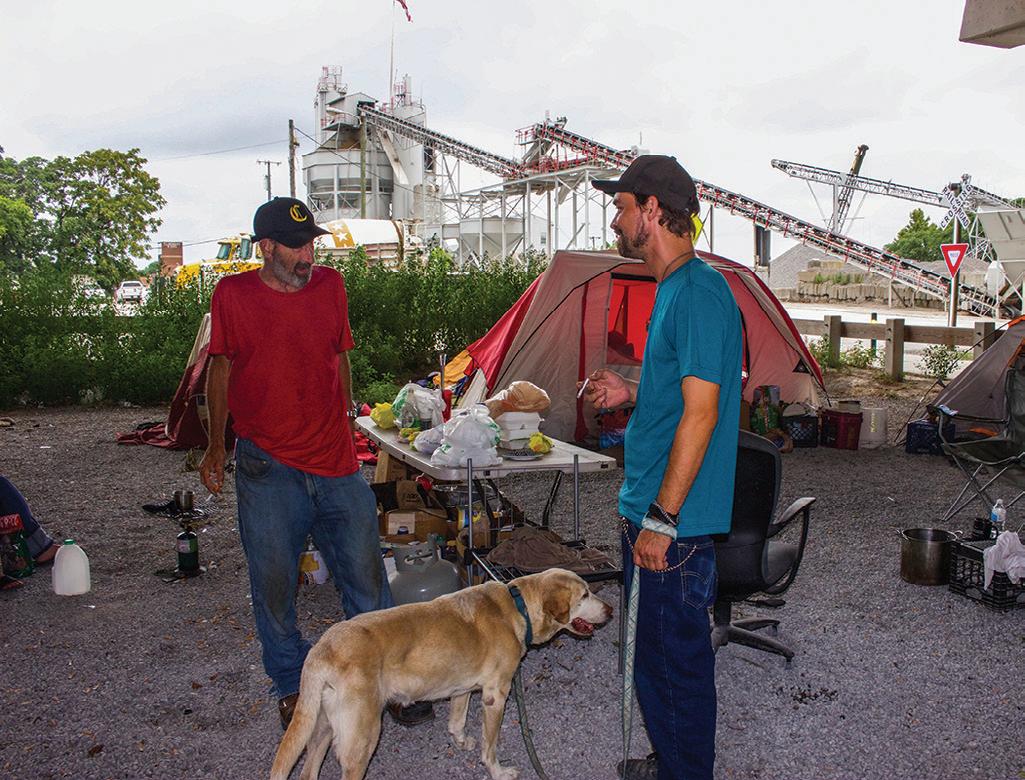
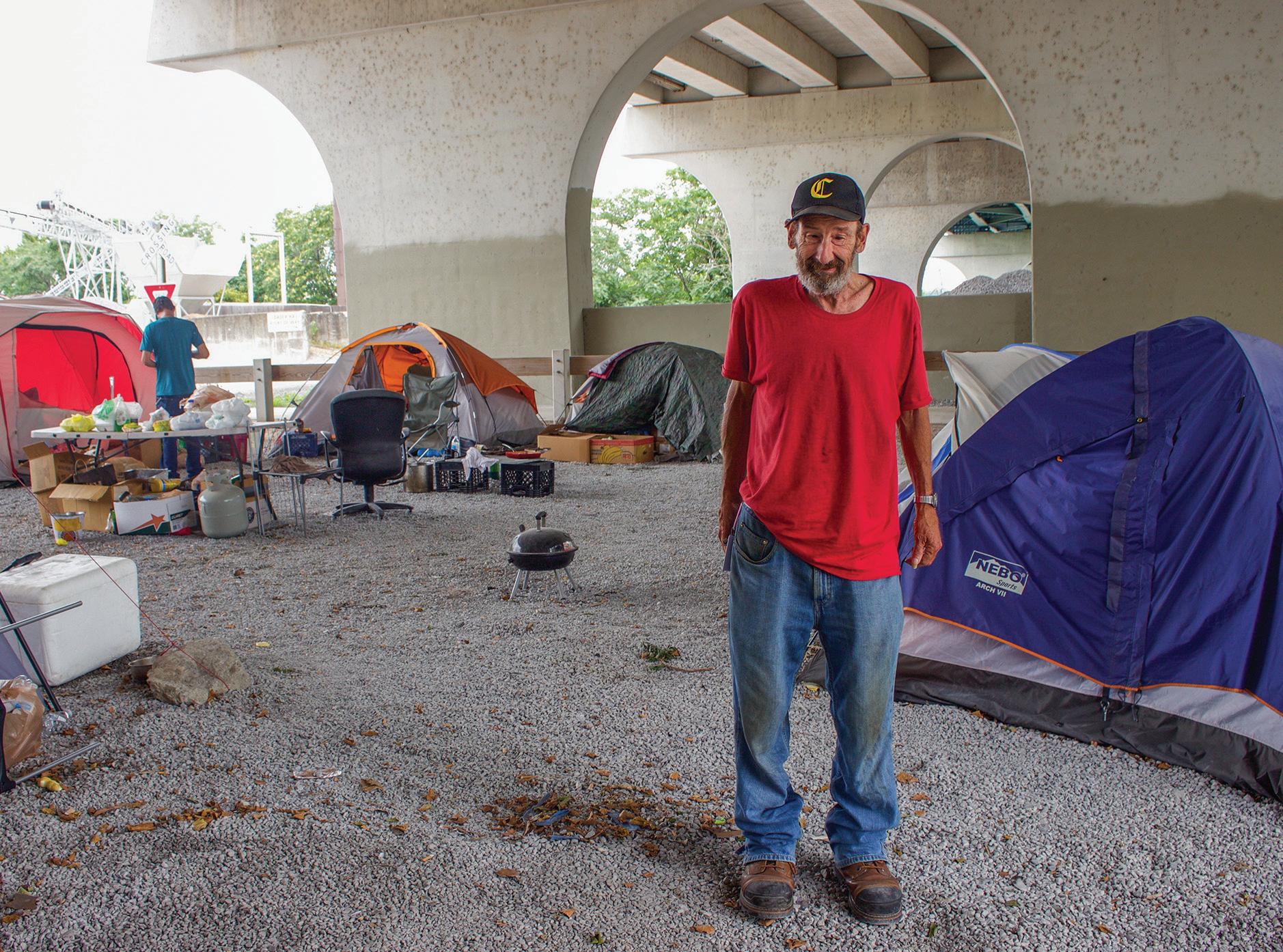
The changes have only begun in Paul’s life. He has daily access to hot showers, enjoys air conditioning and heating, and watches television after selling the papers. Now that he’s in housing, Paul says he wants to improve himself, physically and mentally. The day he signed his lease, he went directly to the store and bought three new T-shirts, a pair of jeans, socks, underwear, soap and an electric razor.
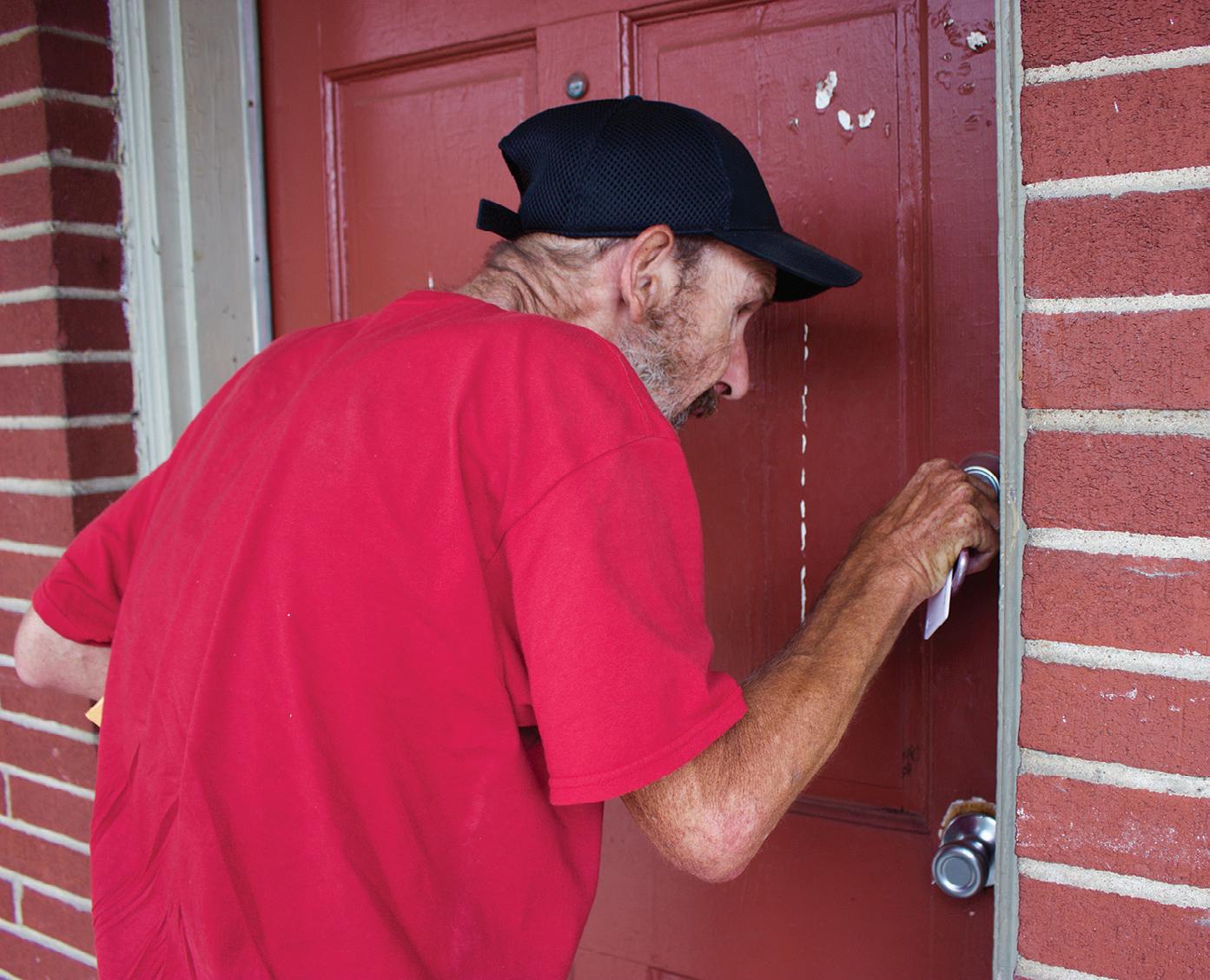
“I want to keep myself up,” he says. I want to look presentable. I don’t want to look like a bum. I represent The Contributor. By being clean shaven, cleaned up, it gives The Contributor a better reputation.”
Paul has a lot of ideas when it comes to addressing homelessness especially, and plans to get involved in any committees he can to help inform the government. He’d like to see the city of Nashville address the housing crisis by rehabilitating abandoned buildings, and training those experiencing homelessness in skilled trades to do that work.
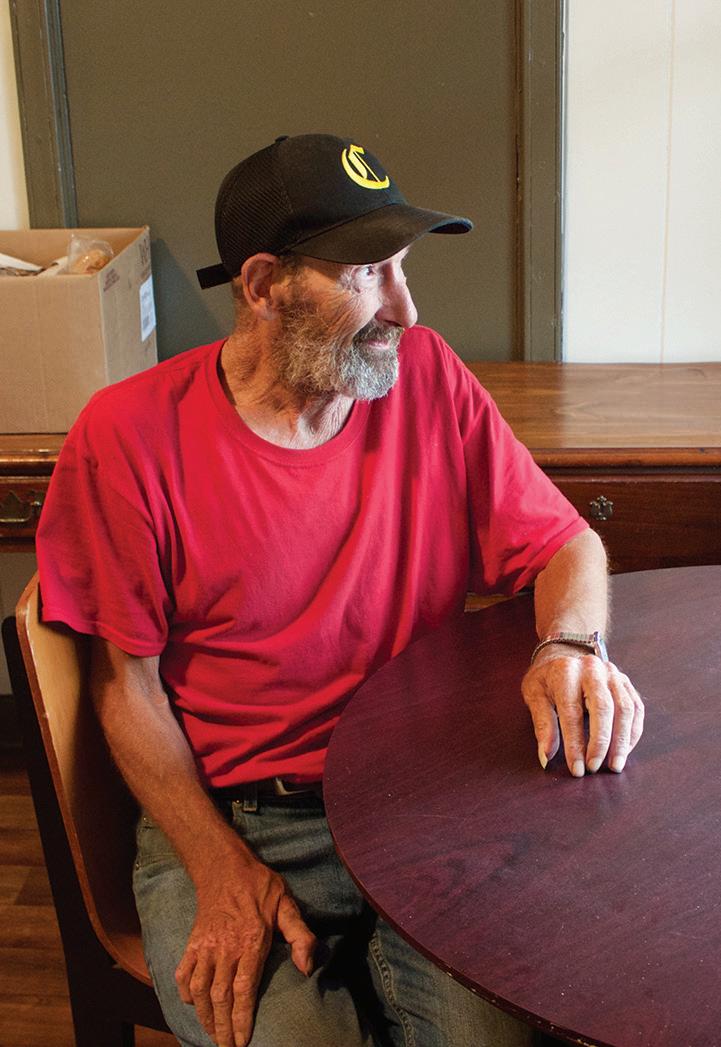
Contributor staff and volunteers describe Paul as a dependable guy who has a positive attitude and is easy to work with. When all was said and done, it took the help of ten or more organizations and dozens of appointments along the way to set Paul on the path to housing — which took four months in total. He’s very grateful to these organizations, and wants for them to be able to continue operating.
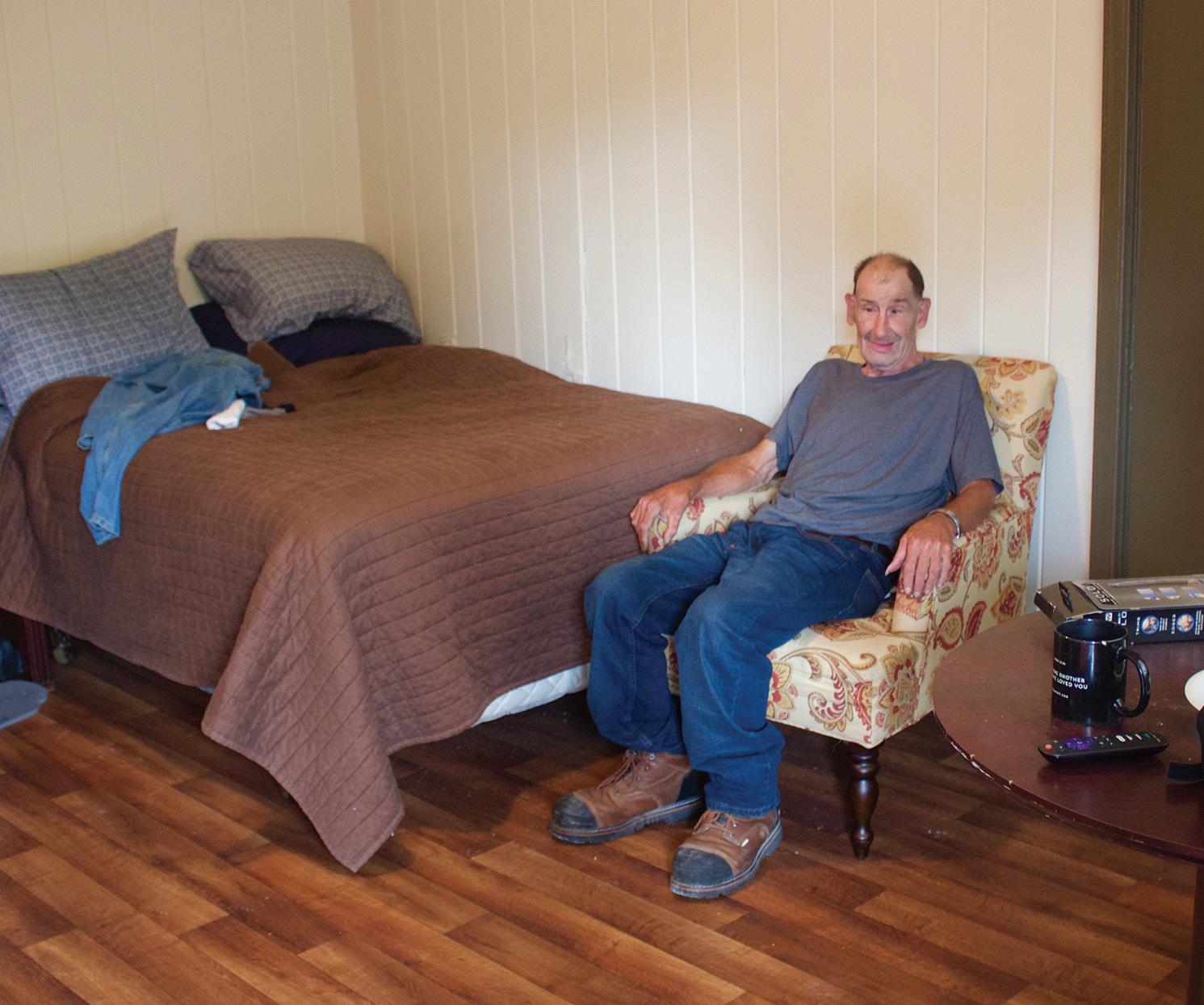
“I gotta change my image, I gotta change my reputation. I gotta change a lot of things, and it’s going to take time for me to get back on my feet the way I should. I just hope people bear with it, and understand. People like me who’ve been homeless need all the help they can get by the organizations that help me. They do need local, state and federal funding — more of it. So they can hire more people, so more can be done to get the ones off the streets that want to be off the streets.”
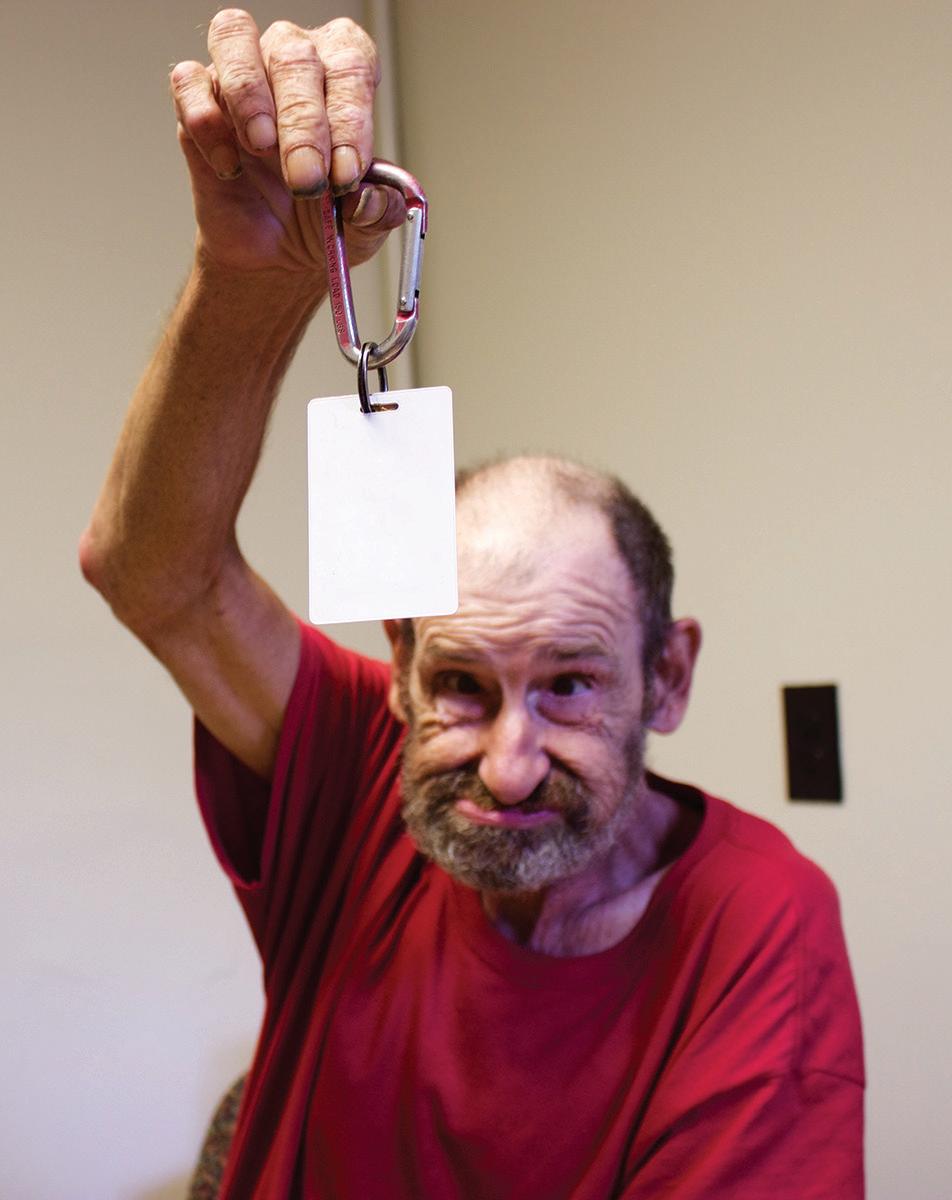
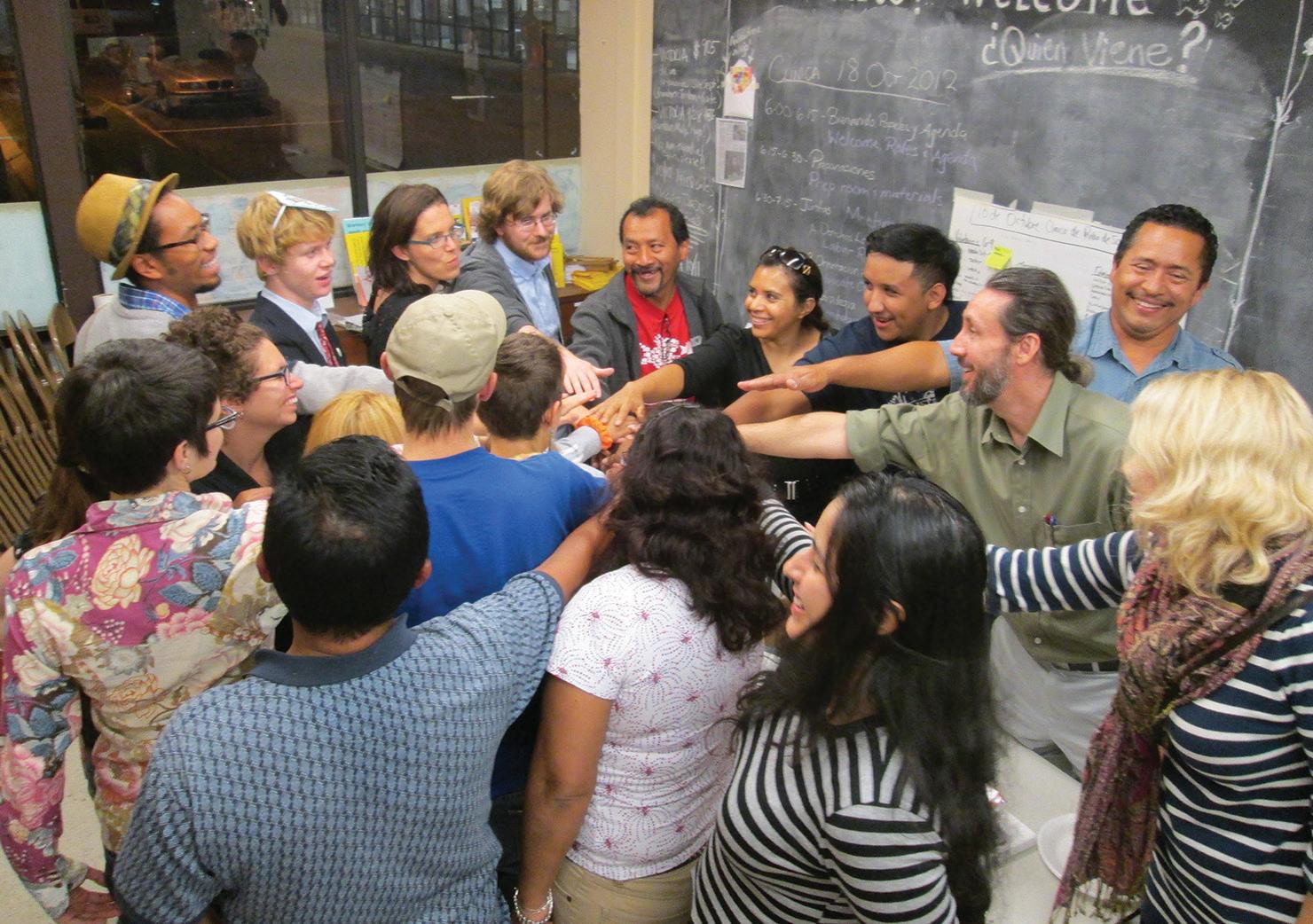
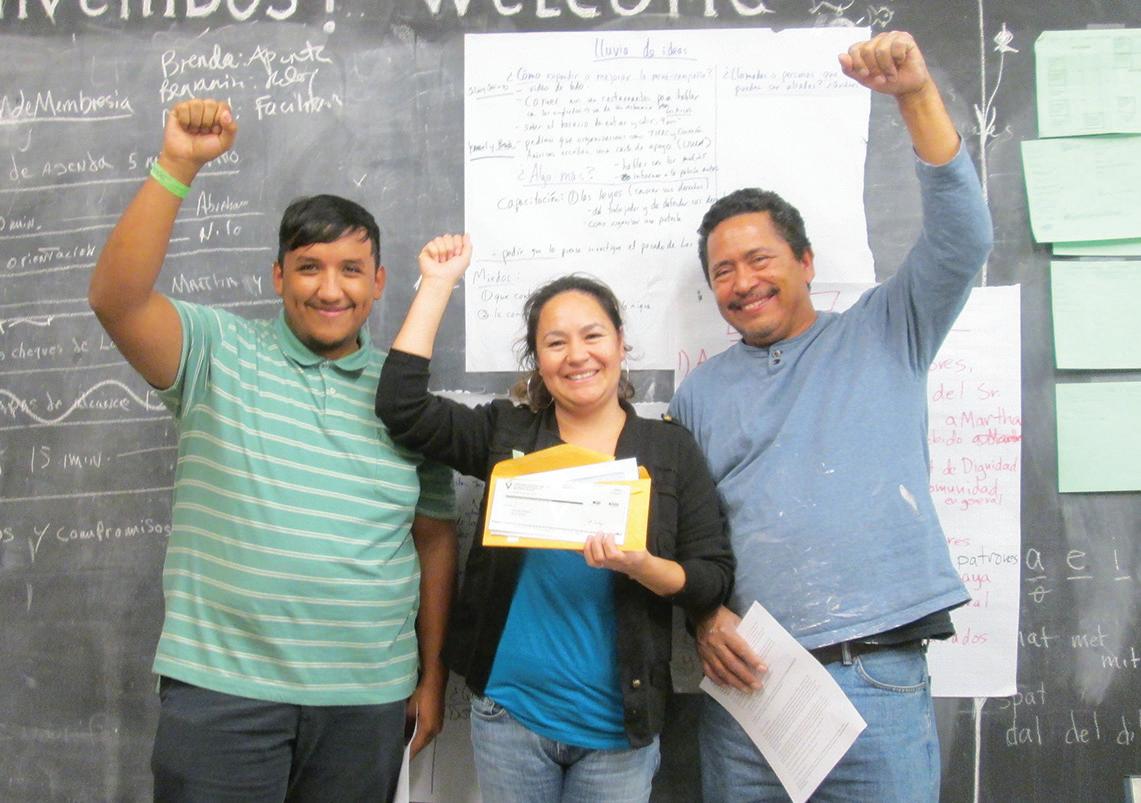
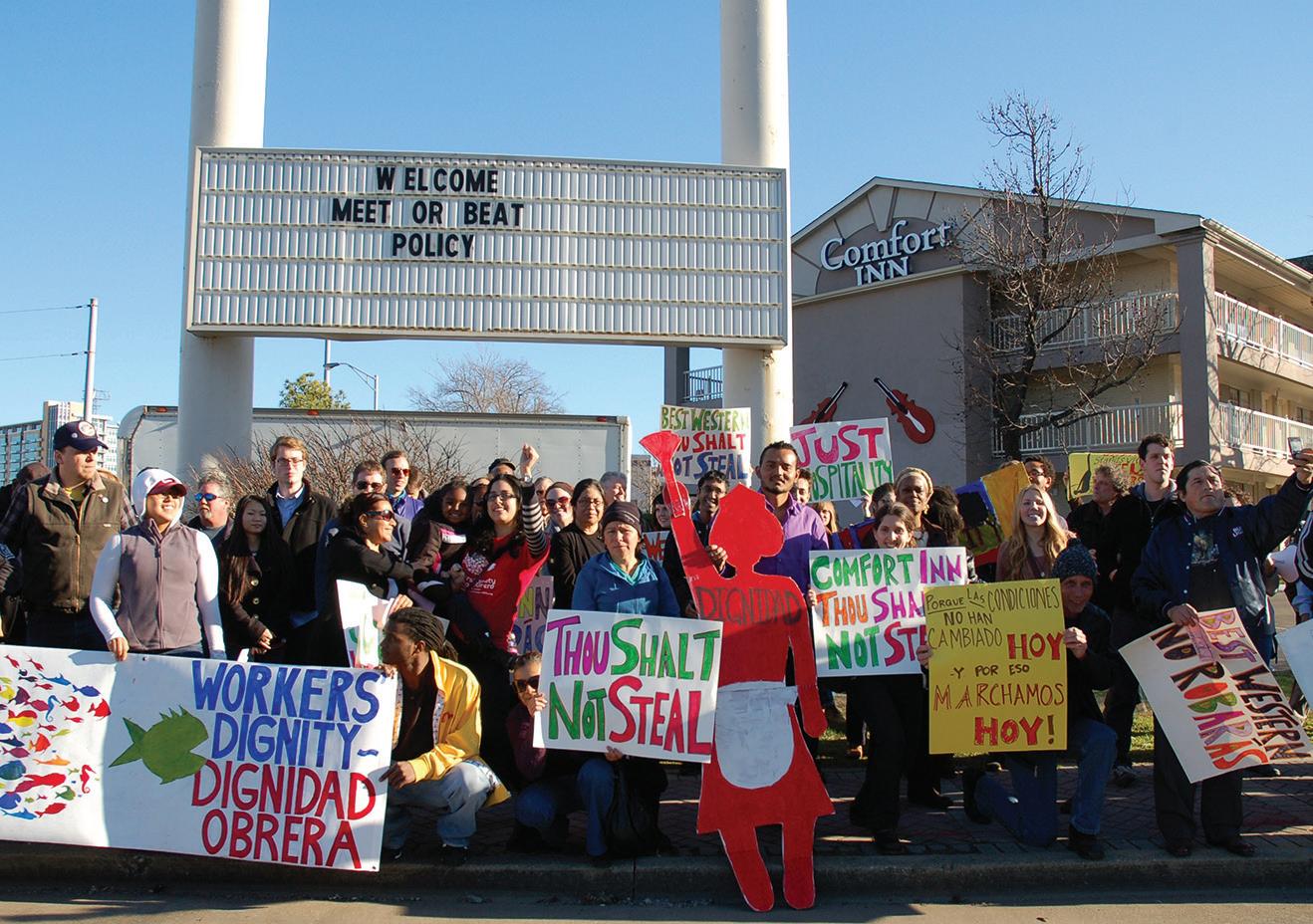
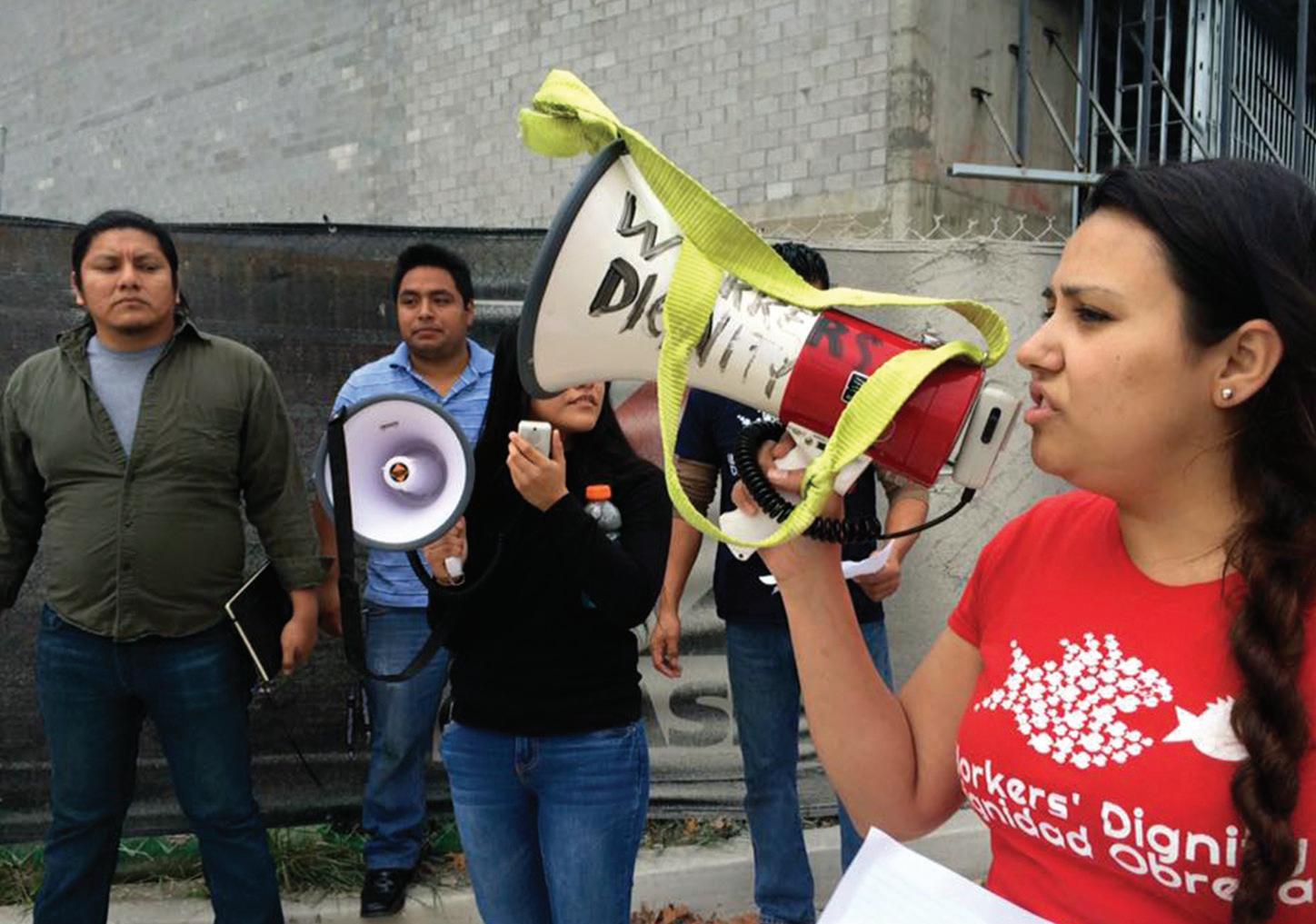
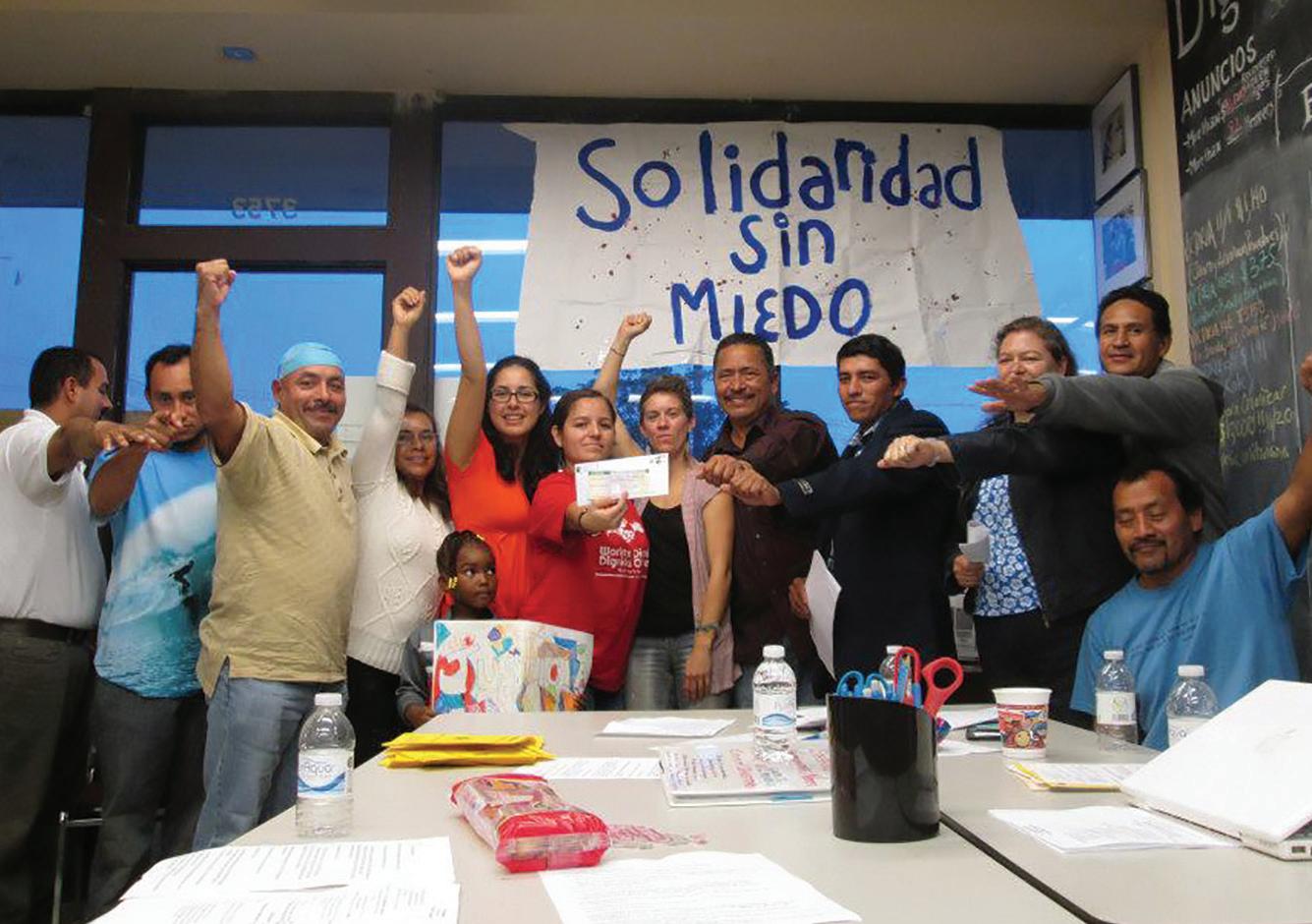

Tourists will flock to Nashville to take advantage of the long Labor Day weekend, but Labor Day will likely not be a day off for many of Nashville’s low-wage workers. These workers, who build the hotels and maintain the rooms where tourists stay, often do not have health insurance or get paid overtime. They deal with at best unpleasant and at worst dangerous working conditions. And sometimes, low-wage workers do not get paid at all.
That’s where local advocacy group Workers’ Dignity steps in. This year alone, the organization has helped to reclaim $135,000 in unpaid wages. They’ve also advocated for dependable public transit and taken action against unfair subcontractors.
Workers’ Dignity recently partnered with other local advocacy organizations to found the People’s Alliance for Transit, Housing and Employment (PATHE). One of PATHE’s first campaigns, an effort to pressure local officials to create 31,000 new affordable housing units in the city, launched this August.
“We’re just trying to mobilize as many people as we can in Nashville to start shifting the conversation around affordable housing and to demand that people start having conversations about how unaffordable Nashville is becoming,” says Sam Petschulat, volunteer ally with Workers’ Dignity. “If we don’t demand that the city invest in affordable housing for people now — sooner rather than later — the problem gets way worse and there’s less that can be done.”
Diana Lopez, organizer of the Wage Theft Campaign, started volunteering with the organization back in 2014, while she was working as a housekeeper. Lopez recognized the importance of solidarity and organization among low-wage workers. She explains that many of these workers simply don’t know much about labor laws, which is why the organization hosts a Defend Your Rights workshop every week.
“I think the most important part is that, more than anything, the immigrant community is afraid to report an abuse or also to believe that they actually have rights,” Lopez says. “And I think it’s one [of] the biggest challenges, to try to show them. Another thing is that many don’t think organizing is a right and they see it as, ‘OK, if I make a group with my friends, with my co-workers, they’re going to take my job away and I’m more at risk. I need my job.’ So, I think there are a ton of things that I could list right now
that workers really don’t know unless they hear them in a workshop.”
She added, “And also another thing is that many, before coming here, see it as normal to be in a workplace in which they don’t pay you overtime, in which they don’t give you a lunch break. And they see it as normal because it’s been like a chain that they’ve followed.”
In February, Workers’ Dignity members reclaimed $185,000 in wages for 46 construction workers who had worked on the J.W. Marriott hotel Downtown. A lawsuit claiming more than $1 million in unpaid wages from Sanska, a subcontracting firm that hired workers for the same project, is still underway.
Similarly, in December, Workers’ Dignity members successfully challenged a subcontractor called Diversified Maintenance Systems and were able to claim $18,500 in back pay for two employees who had worked cleaning the Brentwood Target. Target ended up breaking its contract with Diversified.
“Part of what we’re doing with a lot of wage theft campaigns is just calling for companies to take responsibility for every worker on their site, regardless if they’ve used a subcontractor to get that labor there,” says Emily Sellers, volunteer ally.
Another Workers’ Dignity initiative, Music City Riders United, advocates for changes to the city’s bus system. This initiative, founded in North Nashville in 2016, is comprised of people who regularly ride city buses, many of whom experience homelessness. Their bus report card, released last January, revealed that the lowest-scoring bus routes were the ones that served neighborhoods with high concentrations of poverty and high concentrations of people of color. The lowest scoring route overall was the Antioch Express. The report card also showed that busses do not run long enough hours to accommodate some working class Nashvillians’ work schedules.
This campaign has been successful in advocating for a number of changes in the bus system, including free bus transfers, elimination of 24-hour in advance reservations for AccessRide, increased frequency on multiple routes and continued service to the 100 Oaks Vanderbilt clinic.
That said, many members of Workers’ Dignity deal with a completely different problem when it comes to transportation. They can only afford to live in far-flung areas of town, which often aren’t served by the public transit system at all.
Undocumented workers cannot obtain a Tennessee driver’s license, so they risk driving
Turistas inundarán a Nashville para aprovechar el fin de semana largo del Día laboral. Pero, el Día laboral probablemente no será un día de descanso para los obreros de bajos salarios en la ciudad. Los que trabajan en construcción y limpieza construyen los hoteles y mantienen las salas donde los turistas se quedan, pero muchas veces no tienen seguro de salud ni reciben pago para horas extras.
Dignidad obrera ayuda con ésto. Desde el principio de 2019, la organización ha reclamado $135,000 en salarios no pagados. Ellos también han abogado para tránsito público y en contra de subcontratistas no justos.
Dignidad obrera se juntó con otras organizaciones de abogacía local durante el último año y medio para comenzar una campaña nueva que se llama People’s Alliance for Transit, Housing and Employment (PATHE). Como parte de ésto, el grupo ayudó a lanzar una campaña que empezó en agosto para empujar al gobierno de Nashville a crear 31,000 unidades de alojamiento asequible en la ciudad.
“Nosotros solamente estamos tratando de movilizar tantas personas como podamos en Nashville para empezar a cambiar la conversación sobre alojamiento asequible y para demandar que la gente empezar a tener conversaciones sobre cómo inasequible Nashville se está convirtiendo”, dijo Sam Petschulat, un voluntario con Dignidad obrera. “Si no demandamos que la ciudad invierte en alojamiento asequible para la gente ahora – mejor pronto que tarde – el problema se empeora mucha y hay menos que puede ser hecho”.
Defender los derechos
Diana López, organizadora de la Wage Theft Campaign, empezó a hacer de voluntario con la organización en 2014 cuando notó la importancia de juntarse mientras estaba trabajando como limpiadora. Ella dice que muchos obreros de salario bajo no saben mucho sobre las leyes laborales, por lo cual la organización presenta talleres sobre los derechos de obreros cada semana.
“ Creo que la parte más importante es que mucho sobre todo la comunidad migrante tiene miedo a denunciar algún abuso o también para creer que realmente tienen derechos”, López dijo. “Y creo que es como uno de los retos más grandes, tratar de mostrarles a ellos. Otra de las cosas es que muchos no creen que organizar es un derecho y lo ven como, ‘O, bueno, si yo hago un grupo con los amigos, con los compañeros de trabajo, van a quitarme mi trabajo y estoy en más riesgo. Yo necesito mi trabajo’. Entonces, creo que son como un montón de cosas que podría listar ahorita de
que los trabajadores realmente no saben hasta que no escuchan un taller de esos.”
Ella añadió: “Y pues también otra de las cosas es que muchos antes de llegar acá lo ven normal estar en un lugar de trabajar en el que pues no te pagan el tiempo extra, en el que no te dan tiempo de almuerzo, y lo ven normal porque es – ha sido como una cadena que han seguido.”
En febrero, miembros de Dignidad obrera reclamaron $185,000 en pagos para 46 obreros de construcción que trabajaron para el hotel J.W. Marriott en el centro de la ciudad. Todavía hay una demanda judicial en marcha para $1 millones más en presuntos salarios no pagados en contra de Skanska, una firma de subcontratación que fue contratado para el hotel y también para otros proyectos de construcción largos en Nashville.
En diciembre, miembros Dignidad obrera ganaron salarios para obreros que estaban limpiando para un subcontratista que se llama Diversified Maintenance Systems. Dos miembros que limpiaron el Target en Brentwood recibieron $18,500 que fueron adeuados. Target ha roto su contrato con Diversified.
“Parte de lo que estamos haciendo con las campañas de robo de salarios es solamente pidiendo que compañías tomen responsabilidad para cada obrero que trabaja en su sitio, a pesar de que han utilizado un subcontratista para su labor allí”, dijo Emily Sellers, una voluntaria.
Otra campaña de Dignidad obrera, Music City Rider’s United, publicó su boleta de calificaciones de los autobuses en enero. El boleta de calificaciones nuevo reveló que las rutas con los puntajes más bajos eran los que sirvieron los barrios con concentraciones altas de pobreza y personas de color. La ruta con el puntaje más bajo era el Antioch Express. El boleto de calificaciones también mostró que los autobuses no operan tantas horas para acomodar algunos de los horarios de la clase obrera en Nashville.
Music City Rider’s United, formado en North Nashville en 2016, se compone de personas que utilizan el sistema del autobus regularmente, y muchas de esas personas no tienen hogares.
Esta campaña ha sido exitoso en abogar para un número de cambios en el sistema de tránsito, incluyendo transferencias libres, la eliminación de reservaciones 24 horas antes para AccessRide, aumentó la frecuencia en varias rutas y continuó el servicio a la clínica de Vanderbilt 100 Oaks.
No obstante, muchos miembros de Dignidad obrera enfrentan otro problema relatado al transporte. Ellos solamente pueden pagar la renta en barrios más lejos de la ciudad, los que normalmente no son servidos para el sistema
across town without a license and potentially being arrested during routine traffic stops. Many members say they’ve encountered racial profiling from police, too. Lopez says what these folks need is affordable housing closer to where they work.
The issues of affordable housing, low and stolen wages and reliable transportation are all connected, Lopez says.
“Salaries, like rent, like transportation, [are connected] because many people who don’t have a car use public transit but they’re working at a place where the salary isn’t enough to pay rent where transport is accessible. So, this is a problem,” she explains. “What happens is it’s displacing people outside of Nashville. They’re going to Smyrna, they’re going to Lebanon. But their place the bus doesn’t come. So, it’s totally connected, salary with rent and with transport. It’s an important thing to fight for.”
Lopez says that as a result of an immigration crackdown by the Trump administration, undocumented immigrants especially hesitate to report their stolen wages. There is more fear. To intimidate employees, many employers threaten to send immigration police to their doors.
“And I think, in part, a big part of the immigrant community, when the new administration took over, a big part of the community woke up and also were more willing to fight,” Lopez says. “But another part of the community also decided to go unnoticed in whatever situation. But, more than anything, out of fear.”
Who is Workers’ Dignity Workers’ Dignity is made up of people dealing firsthand with some kind of injustice, people who have been through it in the past, and allies. Its steering committee is made up of 70 percent low-wage workers, who vote on all of the group decisions. Allies can give input, but not vote on the organization’s trajectory.
“Something that is important to us as an organization is the belief
that we’re not just working alongside people, for people,” says Sellers.
“It’s that everyday people know best about what’s happening to them and because of their position as a directly affected person they also know best about what solutions should be offered”
Sellers says the work that Workers Dignity does is especially needed in the South, where there are fewer labor unions than in other parts of the country. According to a 2018 report by the Bureau of Labor Statistics, just 5.5 percent of employed workers in Tennessee are members of unions, compared to the national average of 10.5 percent.
From an ally’s point of view, Petschulat and Sellers both said that they were surprised at how aware the public seems to be of these injustices.
“What I find most surprising is how aware most people are that this is going on,” Petschulat says. “I think culturally, a lot of people understand that wage theft is happening, and they know that it’s happening. Just to meet people experiencing it and see people fighting back and winning — it think it humanizes what’s
happening so much. You realize that this common thing that everyone is aware of on some level is so harmful to people that are experiencing it.”
Workers’ Dignity can always use volunteers to join in the call for economic justice and dignity for all. Volunteers need not have experience with advocacy, employment law or even speaking Spanish. Workers’ Dignity operates under the belief that there is strength in numbers.
“It seems like a lot of people have an understanding that workers aren’t treated well, because a lot of people are workers and they get that too,” Sellers says. “But a lot of people are really surprised when they learn that people just aren’t getting paid at all.”

• Know Your Rights Workshop, every Thursday at 7 p.m. at 335 Whitsett Rd.
• Music City Riders United, first Saturday of every month at the Downtown library from 3-4:30 p.m.
de tránsito público.
Obreros indocumentados no pueden obtener un licencia de conducir en Tennessee. Por eso, cuando ellos manejan a través de la ciudad sin licencia pueden ser arrestados durante una parada de tráfico rutina. Muchos miembros dicen que han sido discriminados por la policía, también. López dice que lo que esa gente necesita es alojamiento asequible más cerca a su lugar de trabajo.
Los problemas de alojamiento asequible, salarios bajos y robado y el transporte público todos son conectados, dijo López.
“Los salarios, como la viviendo, como el transporte, porque mucha gente que no tiene un carro, utiliza transporte pero trabaja – está trabajando en un lugar donde el salario no es suficiente para poder pagar una vivienda donde el transporte sea accesible. Entonces, esto es un problema”, López dijo. “El hecho de que, por ejemplo, este parte de Nashville. Está subiendo terriblemente las rentas. Tiene, más o menos, buen acceso al autobus. Pero no todos pueden pagar. Lo que pasa muchas están desplazando afuera de Nashville.
Están yendo a Smyrna, están yendo fuera, Lebanon. Pero son lugares donde el autobus ni siquiera llegar. Entonces, está totalmente conectado, tanto el salario con la vivienda y con la transporte. Es una parte bien importante para luchar.”
López dijo que, como resultado de la administración de Trump, migrantes indocumentados hesitan a reportar sus salarios robos. Hay más miedo. Muchos obreros de pagos bajos reciben amenazas de sus empleados que enviarán a los oficiales de inmigración a sus casas si reporten el abuso.
“And I think, in part, a big part of the immigrant community, when the new administration took over, a big part of the community woke up and also were more willing to fight”, López dijo. “But another part of the community also decided to to go unnoticed in whatever situation. But, more than anything, out of fear.”
¿Quién es Dignidad obrera?
Dignidad obrera está compuesta de personas que está enfrentando a uno u otro tipo de injusticia o la han enfrentado en el paso, y los aliados. Su comité de directivo se compone 70 por ciento con obreros de salarios bajos, quienes votan en todas las decisiones del grupo. El otro 30 por ciento, que son aliados, puede dar sugerencias, pero no votan para la
trayectoria de la organización.
“Algo que es importante para nosotros como una organización es la creencia que no solamente estamos trabajando al lado de personas, [pero también] para personas”, dijo Sellers. “Es que personas ordinarias saben lo mejor sobre qué está pasando a ellos. Y, por su posición como una persona afectada directamente, ellos también saben lo mejor sobre las soluciones que deben ser ofrecidos”.
Sellers dijo que el trabajo de Dignidad obrera hace es especialmente necesitado en el sur, porque hay menos uniones aquí que en otras partes del país. Según un reporte de 2018 del Bureau of Labor Statistics, solamente 5.5 por ciento de trabajadores empleados en Tennessee son miembros de uniones, comparado con el promedio nacional de 10.5 por ciento.
Del punto de vista de un aliado, Petschulat y Sellers ambos dijeron que estaban sorprendidos que el público no sabe tanto sobre estas injusticias.
“Lo que encuentro más sorprendente es cuán conscientes la mayoría de la gente están que esto está pasando”, dijo Petschulat. “Creo que, culturalmente, muchas personas no comprenden que el robo de salarios está pasando, y ellos saben que está pasando. Solamente para
conocer a personas que están experimentando esto y ver a personas que está luchando y ganando – creo que humaniza lo que está pasando mucho. Se das cuento de que esta cosa común de que todos son conscientes en algún nivel es tan peligroso a personas que lo están experimentando”.
Dignidad obrera solamente necesita voluntarios para juntarse en la llamada para la justicia económica y la dignidad para todos. Voluntarios no necesitan tener experiencia con la abogacía, la ley de empleado ni necesitan hablar el español. Dignidad obrera opera bajo la creencia que hay fuerza en números.
“Parece como mucha gente tiene una comprensión que los trabajadores no están tratados buenos, porque mucha gente son obreros y ellos comprenden eso, también”, Sellers dijo. “Pero, muchas personas están sorprendidos cuando ellos aprenden que la gente justo no les pagan nada”.
• Taller: Saben sus derechos, cada jueves a las 7 p.m. en 335 Whitsett Rd.
• Music City Riders United, el primer sábado de cada semana en la biblioteca en el centro de la ciudad a las 3-4:30
One of the deterrents of being awesome is to create a mental list of all the reasons our problems are unique and why we must suffer from them. The pay is too low, the housing is too high, the market is too tough, the people are too mean, the politicians too short-sighted, the agencies too self-serving, the poor too poor, the days are too long, and “you just don’t understand.”
What is understood? All of these same conditions and choices brought forth both an increase and decrease in homelessness and a massive increase of street-level living due to wavering commitments to proven practices in NYC, Denver, Atlanta, and Seattle.
You see, each city is absolutely unique. And each city is the same. So what are the solutions?
In 1818, the Society of Pauperism met in NYC. The solution was;
1st - Engagement. Go out and meet the people where they are, 2nd - Equip. Meet the person, not the problem and determine their goals, 3rd – Empower. Help people achieve their goals.
There was a word of caution, if you make begging more productive than working then begging will increase. If you walk with people down the paths to employment and housing, then they will enjoy the journey to a higher quality of life. But that was 1818 NYC, right?
Last week, in Australia in an article titled, “Housing Ends Homelessness”, there is a call first for a change in the public will to get involved and then practical steps to engage, equip and empower.
1st - Engagement. Go out and meet the people. Research shows that treating people with dignity and respect at the moment of their first contact is critical to continue to connect with them and have the opportunity to stay in contact, shaping and influencing their experience. Conversely, a negative first contact makes it likely that they will be lost to the organization.
2nd - Equip. If we can divert people experiencing homelessness away from the service-based cycle, where they return over and over to a series of programs, we take away so much cognitive overload of uncertainty. We should
intentionally reduce the sludge of processes.
3rd – Empower. Coaching through the entire cycle of connection with clients, from first knock on the door to being settled, and involving partnerships with other organizations, homelessness (social displacement) can be ended.

For The Salvation Army to play its part in the process, we are committed to a balance of direct assistance, partnership, and advocacy.
include the whole community’s solutions and go.
2nd – Equip. Meet the person, not the problem. Serve the person, stop punishing the population.
3rd - Empower. Love thy neighbor, living out The Salvation Army Christian Mission, walk the path to a shared higher quality of life.
As always, you are welcome to join us. Simply text me at (615) 933-9305. Let’s be unique, together.
Our responsibility is to take a historical review and a global view of what increases the quality of life of individuals and communities to determine what are the principles that can be transferred.
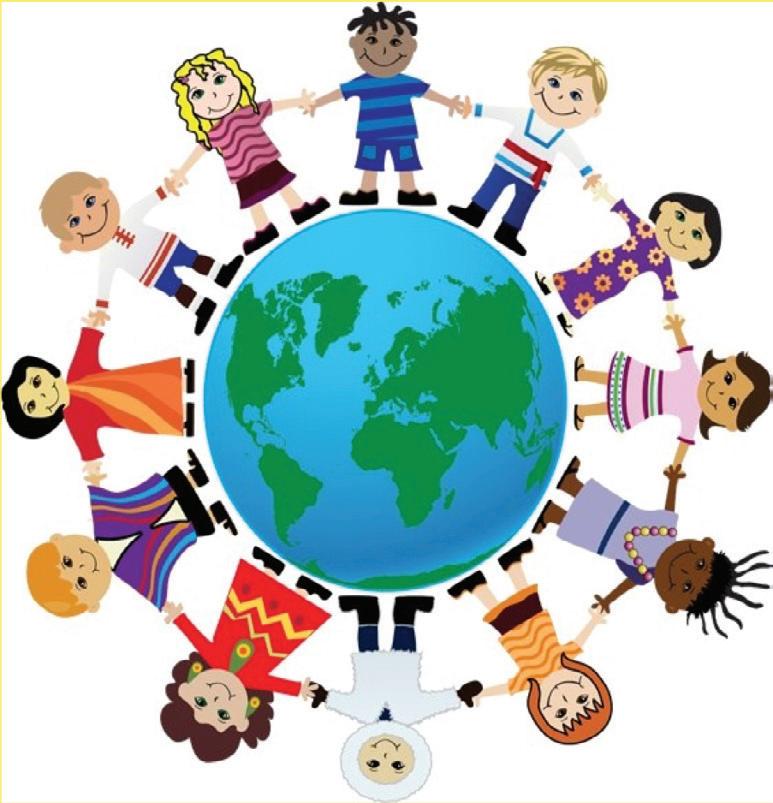
Our challenge is reducing practices that are part of our culture but increase homelessness.
Our commitment is to Fight for Good. 1st – Engagement. Change the narrative to
Major Ethan Frizzell serves as the Area Commander of The Salvation Army. The Salvation Army has been serving in Middle TN since 1890. A graduate of Harvard Kennedy School, his focus is the syzygy of the community culture, the systems of service, and the lived experience of our neighbors. He uses creative abrasion to rub people just the wrong way so that an offense may cause interaction and then together we can create behaviorally designed solutions to nudge progress. Simply, negotiating the future for progress that he defines as Quality of Life in Jesus!
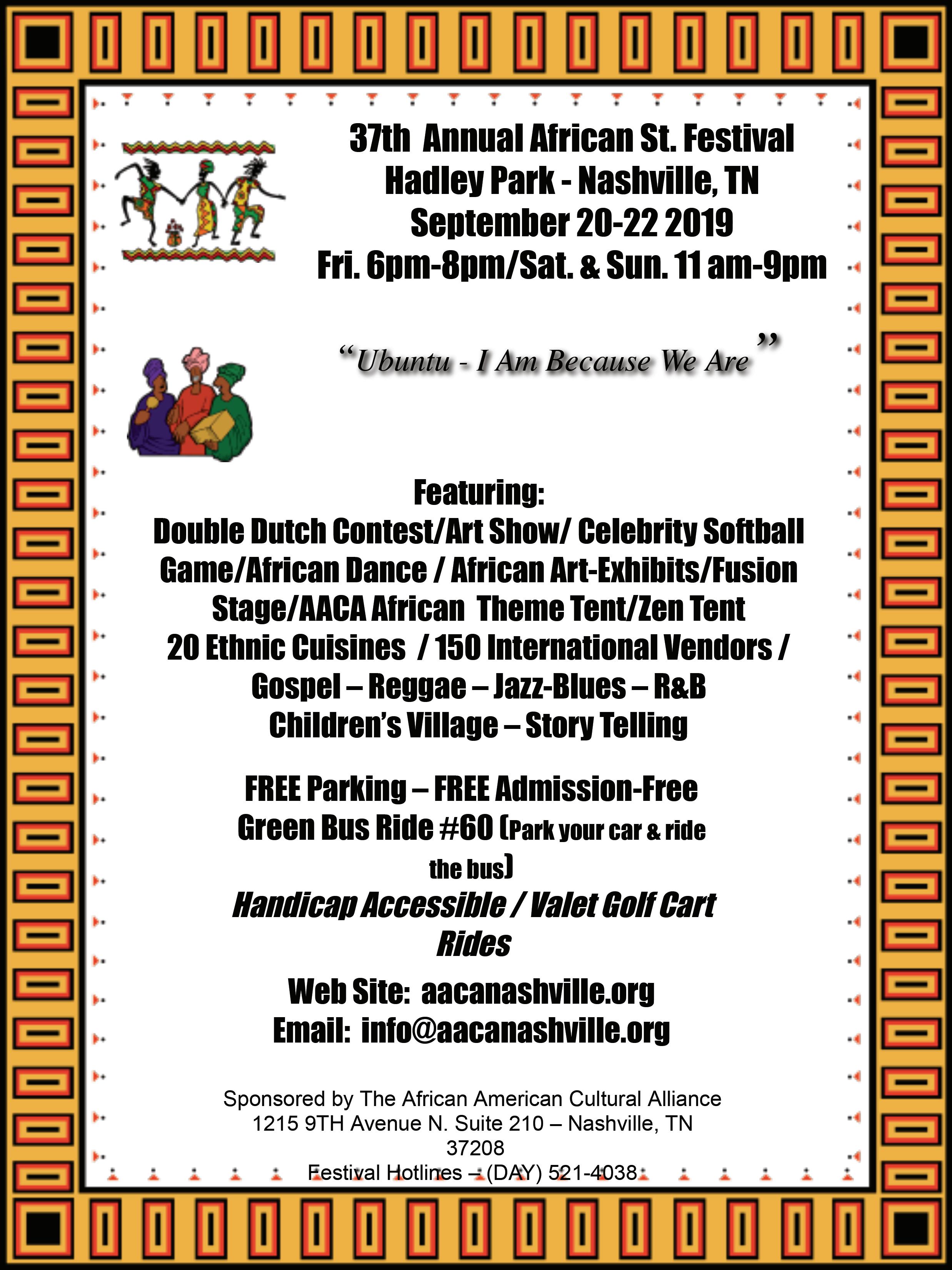
In November of 2018, I was preparing dinner while listening to the radio when 12:20 trivia came on 92.9 as it does every weekday. They said, according to a survey, these were the three most hated foods in America:
Number three was yogurt. That was a surprise to me even though I’m not a big yogurt fan.
Number two was tofu. Not at all surprising to me since it really has no flavor of its own.
And they wanted to know what number one was.
My granddaughter was playing on my phone, and I immediately asked her to bring it to me quickly! I called into the radio station and asked if they had a winner yet. When she said no, I said, “This is gonna be like taking candy from a baby.”
She asked for my guess, and when I replied, “liver” all kinds of bells & whistles went off. I won a $50 gift card to Subway and two tickets to see Allen Stone, the Goo-Goo Dolls, and Train!
For those of you who wonder why I waited so long to write about it, the concert was Tuesday, July 16, 2019 at Ascend Amphitheater. I have to say it was nice to have a mother/daughter night out,. I honestly can’t remember the last time we spent any quality time together just the two of us.
I thought Allen Stone did pretty well for an opening act even though I’d never heard of him until that night. There was a bluesy soulful sound to his music.
As for the Goo-Goo Dolls, I wasn’t that impressed. In their hourlong set, I knew a total of three songs:
“Iris,” “Slide,” and “Name.” And I’m really into music. They tried to get the crowd into it but they weren’t very successful. I’m guessing it’s because like me, the crowd didn’t know many of their songs either. I found myself thinking I would’ve been equally satisfied with a GooGoo cluster — possibly more so — because at least they have chocolate! (My daughter said I shouldn’t write that, but it’s the truth.)
Train was GREAT! I was actually on my feet for most of their show. They opened with Calling on Angels and they played all their biggest hits. Travie McCoy even made an appearance via FaceTime for the song “Call Me Sir.” I wish they’d done something like that for the song “Bruises” featuring Ashley Monroe but no such
Mark Zammit, a 31-year-old English actor and director, was so touched by homelessness that he had the courage to make a movie about homelessness called Homeless Ashes. The movie tells the
story of Frankie, a young boy who faces his fears and runs away from home with no other choice but to try to survive on the streets of England. Having a, “you can achieve anything if
luck. Somehow Patrick Monahan belting it out to Allen Stone didn’t have the same effect, at least for me.
One of my personal favorites was, “Marry Me,” which was one of my “rent-a-kid” Branden’s wedding songs. (For those of you who don’t know what a “rent-a-kid” is, that’s a kid that spends so much time at your house you think of them as your own.)
They also did a touching rendition of “When I Look to the Sky.” That song is about losing someone you love but how they’re always still ever present with you. Then there was “Hey Soul Sister,” which I’ve actually been called a time or two by some of my customers (though not in reference to that song.) They also sang another good one, “50 Ways to
Say Goodbye.” Anyone who’s ever been put on the spot to explain the absence of their significant other can appreciate this song. I gotta say there are some pretty interesting possibilities mentioned in those lyrics.
My daughter was shocked that I actually knew the words! Can you believe it? I can’t. I thought she knew me better than that!
Doing what I do, selling the paper, I have to mention “Drive By.” Don’t get me wrong, I get my fair share of those who just drive by, but there are also those who do far more than just “drive by” and prove time and again “they’ll be there for me” just as the song says.
Although I can’t say everything went off without a hitch, I have to say we had a pretty good time.
you believe,” attitude, Zammit is trying to put Homeless Ashes on the big screen, directing and playing the lead role of Frankie.
It took Zammit four years to make this movie a reality and he released the trailer on YouTube (www.youtube.com/watch?v=RuzoPUTMWL4). He warns that the video might contain disturbing images of violence and human suffering — homelessness is disturbing. I was glued to the video until the very end, wiping my tears. It is a true depiction of life on the streets in England. No cotton candy fluff show-
ing homeless people smiling seemingly happy. Homeless Ashes is being submitted for several film festivals across the country. Festivals for private, documentary type films that you don’t see at the box office. The Nashville Film Festival on Oct. 3-12 has celebrated documentaries for over 50 years. I wish Homeless Ashes could be part of such a special event.
This story needed to be told for many years. When most would look away from those experiencing homelessness, Zammit brings it right to you in a kind of in-your-face type of realism.
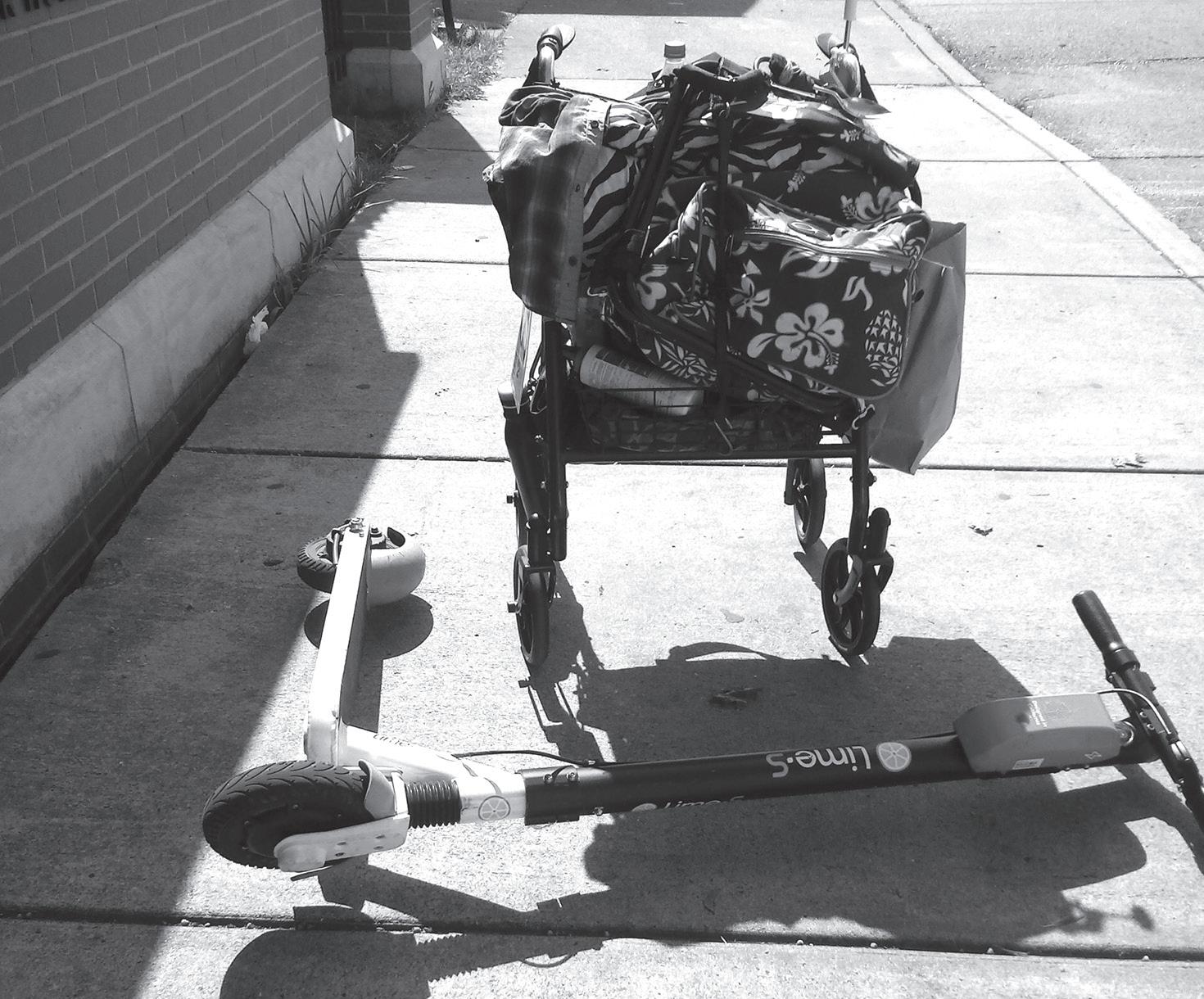 BY WILLIAM B., CONTRIBUTOR VENDOR
BY WILLIAM B., CONTRIBUTOR VENDOR
When I get ready to go out and play my music when I’m on my wheelchair walker, people on the scooters got them parked in the middle or laying flat down in the middle of the sidewalk. There have been as many as four in the middle at once. I’m 100 percent disabled and it kind of hurts me to pick up one of those scooters and move it, but I have to if I want to get by. I can’t catch myself. My balance is getting bad. I’ve been getting hurt. I’ve actually went to the hospital a couple of times from falling. Every time someone had to help me up. I could not get up. I was stunned good.
It’s something I deal with every day. The scooters are beginning to be a big problem. I feel like something needs to be done about this crap. People are disrespecting disabled people and senior citizens here in Nashville, and most of them are coming in from out of town. I think I’m going to go to the mayor’s office about it. I’m not a person to sit back and let things be done to me and not say something. I don’t do nothing against the law to do it — I get it done through the law. Now that I’m being disrespected with these scooters it’s time for me to take a stand and say something.

Have you considered getting one of those standing desks, Virgo? It’s supposed to have all kinds of health benefits, and aid in concentration and creativity. Better yet, why not just stop doing things that require you to have a desk? Sure, I understand, you have to “work.” But what percentage of the time at your desk are you actually “working.” Get out from behind the old plank and go for a lazy walk or a long sit in some short grass.
Quick, are you an optimist or a pessimist? “I’m a realist,” says the pessimist. “Hey, that’s not fair, I didn’t say I was a pessimist. Maybe I’m just a pragmatist,” the pessimist continues. “Did you say you’re a pianist? That’s so exciting, I’m training to be an acupuncturist,” the optimist interjects. The pessimist, feeling misunderstood, walks away to become better defined. The optimist, now alone, ponders the isolation of a positive outlook. Who will you be?
A group of stingrays is called “a fever.”
A gathering of squid is called “an audience.” Enough jellyfish in one place is “a smack.” I’m sure aquatic life is an amazing field of study, but when I learn terminology like this, I can’t help but worry that marine biologists need more opportunities to be verbally creative. This is a good week for you to play with words, Scorpio. Make some new ones. Loosen up the ones you’ve already got.
What a long, lousy day! I thought everything was just going to keep going wrong. By the time I backed my car over my phone this morning, I was already 15 minutes late, had marinara sauce all over my shirt, and second-degree burns on both my feet. This is exactly why I try to reflect on the positive. I never go to sleep until I’ve thought of three positive things that
happened to me today. Try it, Sagittarius. Today, my list starts with “Had spaghetti for breakfast…”
Personally, I have no idea how criminal sketch-artists do it. I mean, I’m terrible at describing people. “Y’know he’s the not-too-tall guy with the short-ish hair and the … teeth?” Be describable this week, Capricorn. Be different enough to stand out. Best-case scenario: It will make you memorable. Worst-case scenario: It will help out the sketch-artist later.
Like the song says, Aquarius, “a dream is a fist your heart makes.” Well, it definitely says something like that. Anyway, it reminds me that your heart can only do so much with that little fist if you never take a good swing at your dreams. Don’t just sit there clenching, Aquarius, throw your fist forward and punch right into whatever your tiny heart desires.
Who are you when you go to sleep, Pisces? I’m not asking you what you dream about, I’m asking who that sleeping person is. Is sleeping-you the same as awake-you? Does your unconscious self put as much weight on your career or your social status as you do in your waking-life? Or is there something in you deeper than that? Maybe today you could try to be more like a sleeping version of yourself.
I don’t have any tattoos, Aries. At least, none that I know of. Come to think of it, do you have a full-length mirror I could borrow? I need to… check something. Ah, but as I was saying, I think tattoos are hard because they’re such a commitment. That’s also why they’re awesome. Make some commitments this week, Aries. Don’t be afraid.
So you’re on a new network with a new desk and a new persona. But, you’re still gonna be you, right Taurus? I mean, sure, now you have to do a monologue and you can’t hide behind your alter ego, but it’s still gonna be the same Taurus we’ve learned so much from already, right? I guess it doesn’t matter what your public thinks, just be who you are and your fans will find you.
When I was a kid I got a reversible raincoat. It was red on one side and blue on the other. I loved it! In adulthood, I’ve learned that most items of clothing are reversible, if you don’t mind the seams showing and the tags hanging out. This week is reversible too, Gemini. Don’t worry too much about messing it up. If you get spaghetti sauce on it, just turn it inside out and start over.
I ran across a list of 25 places you have to see before you die. And they’re right. As far as I can tell, that’s absolutely the best time to see all 25 places. I don’t know what’s on the list of the Top 25 places to see after you die, but that makes it all the more important to get to work on that first list. Try to get some travel in whenever you can, Cancer. Don’t put off seeing anything you want to see.
I’ve never seen On the Waterfront . I know it’s supposed to be important and influential, but, for some reason, I’ve never been interested. I think it’s the title. On the Waterfront . Some part of me still assumes it’s just footage of debris floating past a dock. Are you sure you want to keep judging things by their titles, Leo? There might be something really good in there. Don’t let it float past.









Like Watergate, Vietnam and Jonestown, the word Attica is emblematic of the pressure cooker of radical politics and culture in the 1970s. That said, it’s been almost 50 years since the 1971 Attica Prison riot, and many contemporary moviegoers might only know the word from Al Pacino’s famous improvisation in the bank robbery classic, Dog Day Afternoon (1975). Governor Rockefeller took the prison back with a massive outpouring of force: 1600 bullets were fired in less than 10 minutes, and the four-day rebellion ended with 29 prisoners and 10 guards killed. Following the riot prisoners contended that they were brutalized for their rebellion. For decades after the riot prisoners waged a legal battle against the State of New York, and in 2000 surviving Attica inmates won
a $12 million settlement. But, the result only created resentment from the surviving guards and their families – some of whom were held hostage during the riot.
The 2001 documentary Ghosts of Attica is a harrowing recreating of what happened during those four days using lots of vintage footage and new interviews with the surviving inmates and guards. If this film has a protagonist it would be
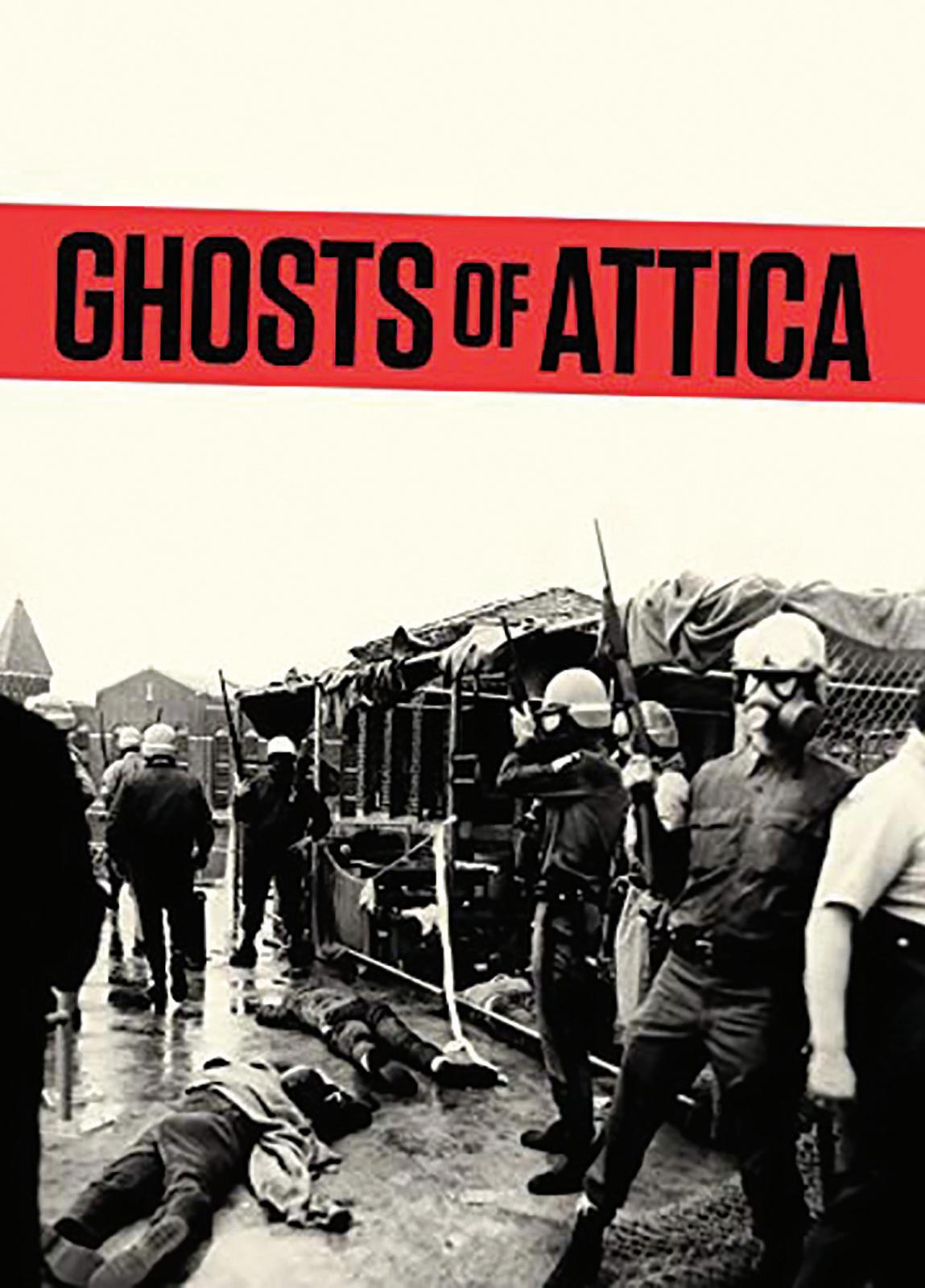
Frank “Black” Smith. When the riot began Frank’s massive stature and his cool temperament saw him dubbed the inmates’ Chief of Security. After the prisoners were locked back down, Smith was targeted by the guards who tortured him with cigarettes, threatened him with castration and forced Smith to play Russian Roulette. Smith’s counterpoint in the film is Mike Smith. When the riot broke out Smith was
a 22-year-old guard who was taken hostage by the inmates and then hit with a bullet when the prison was taken back. One of the greatest strengths of Brad Lichtenstein’s film is that it tells the whole story of the riot for everyone who was inside those high prison walls. An internet search reveals that the “Attica Prison riot” is also called the “Attica Prison rebellion” and the “Attica Prison uprising.” All the names are considered correct despite the fact that they contradict one another. Of course the families of the dead guards have suffered an unjust lost, and Lichtenstein doesn’t forget them even as he illuminates the horrific prison conditions that led to the riot, and the criminal retribution that followed.
The riot footage and the prisoner and guard interviews provide invaluable documenting, but some of the most engaging parts of this film feel more like a courtroom drama thanks to Elizabeth Fink, the attorney who lead the inmates’ decades long legal fight. Fink is naturally charismatic on camera – the Central Casting version of an old school progressive lawyer who’s dedicated her career to fighting abuses of state power. Lichtenstein weaves together perspectives from inmates, guards, journalists and politicos, but Fink often gets the last word, insisting that the response to the riot was mishandled, out-sized and purposefully sadistic. “You had to stay in your place, and if you didn’t, you had to be taught a lesson,” says Fink. “Attica was the ultimate lesson.”
Susan Sarandon narrates Ghosts of Attica and Vernon Reid provides the original score. DVD extras include an audio interview with Fink discussing the $12 million dollar settlement, and a selection of archival footage of the riot from the New York State Archives.
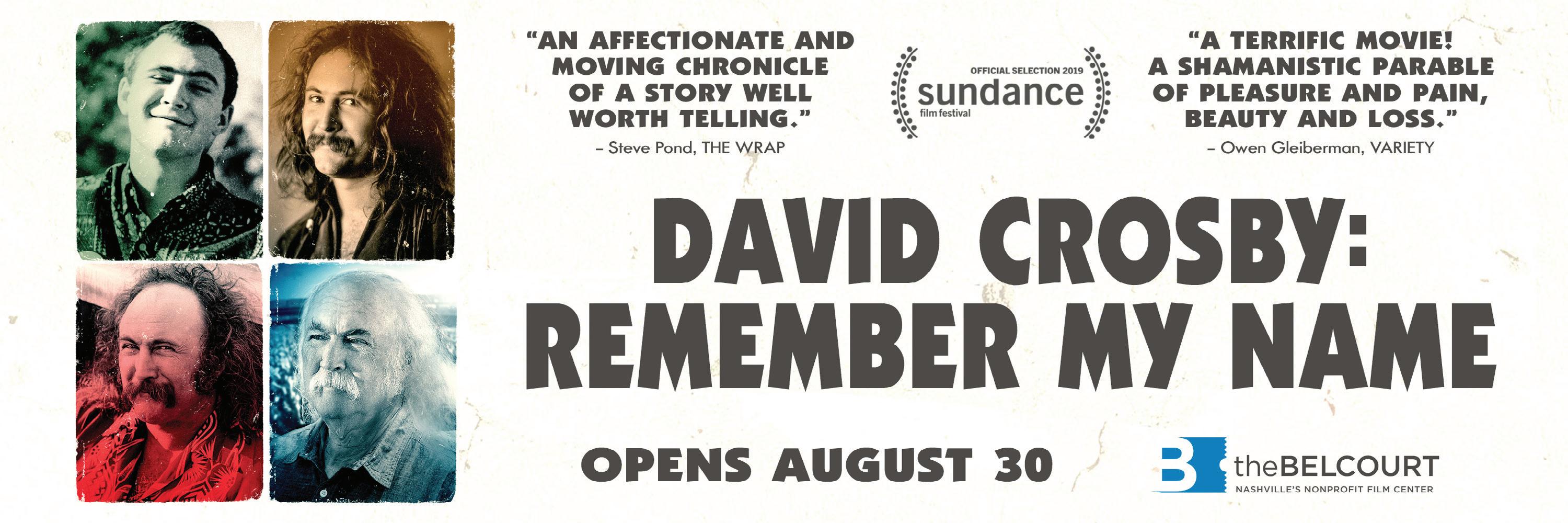
Ghosts of Attica releases on DVD on Tuesday, Sept. 3
Joe Nolan is a critic, columnist and performing singer/ songwriter based in East Nashville. Find out more about his projects at www.joenolan.com.



